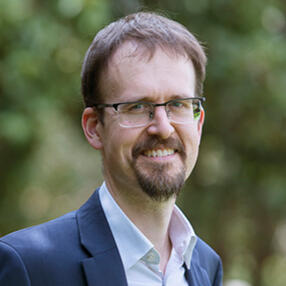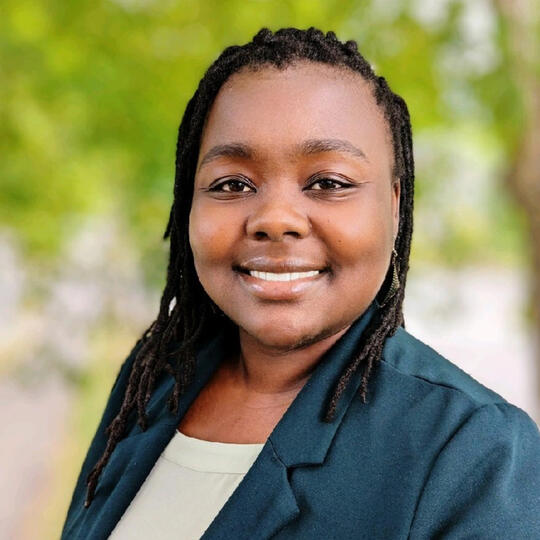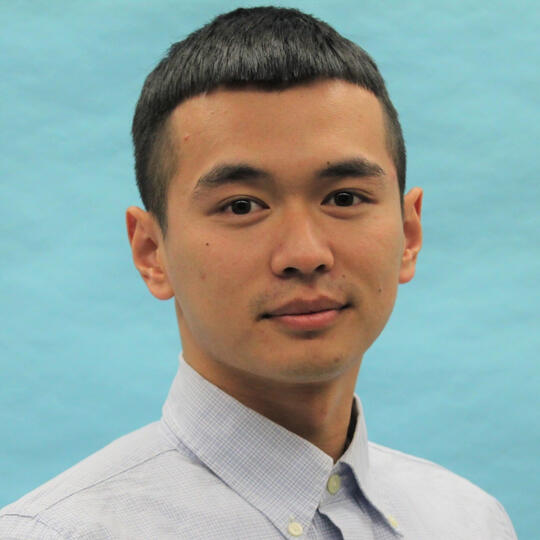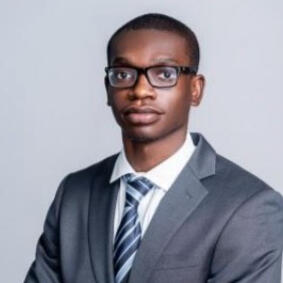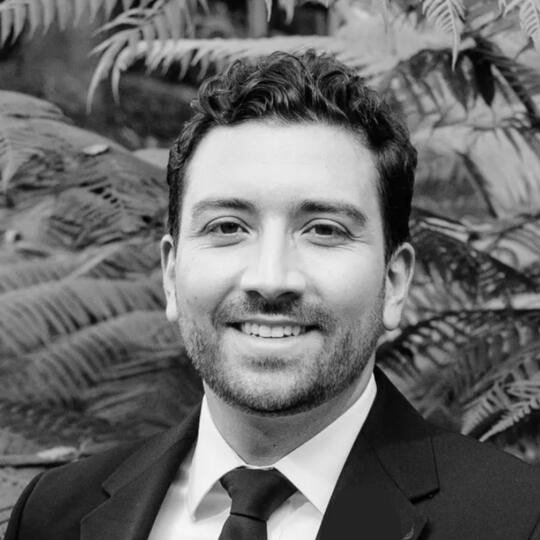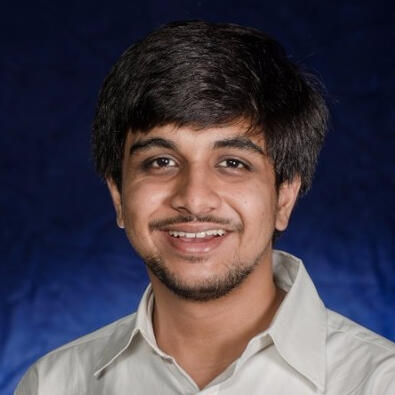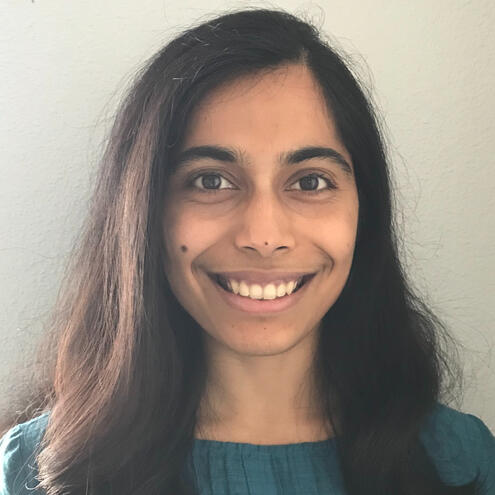e-GUIDE
Electricity Growth and Use In Developing Economies

About
The Electricity Growth and Use in Developing Economies (e-GUIDE) Initiative seeks to transform the approaches used for planning and operations of electricity infrastructure in developing regions. We are constructing measurement and data analytics techniques that are scalable, transnational, and verified using real data on electricity consumption and infrastructure. We partner with electricity service companies to develop our techniques, deploy them at scale, and build capacity for data and analytics in the electricity sector.
Projects
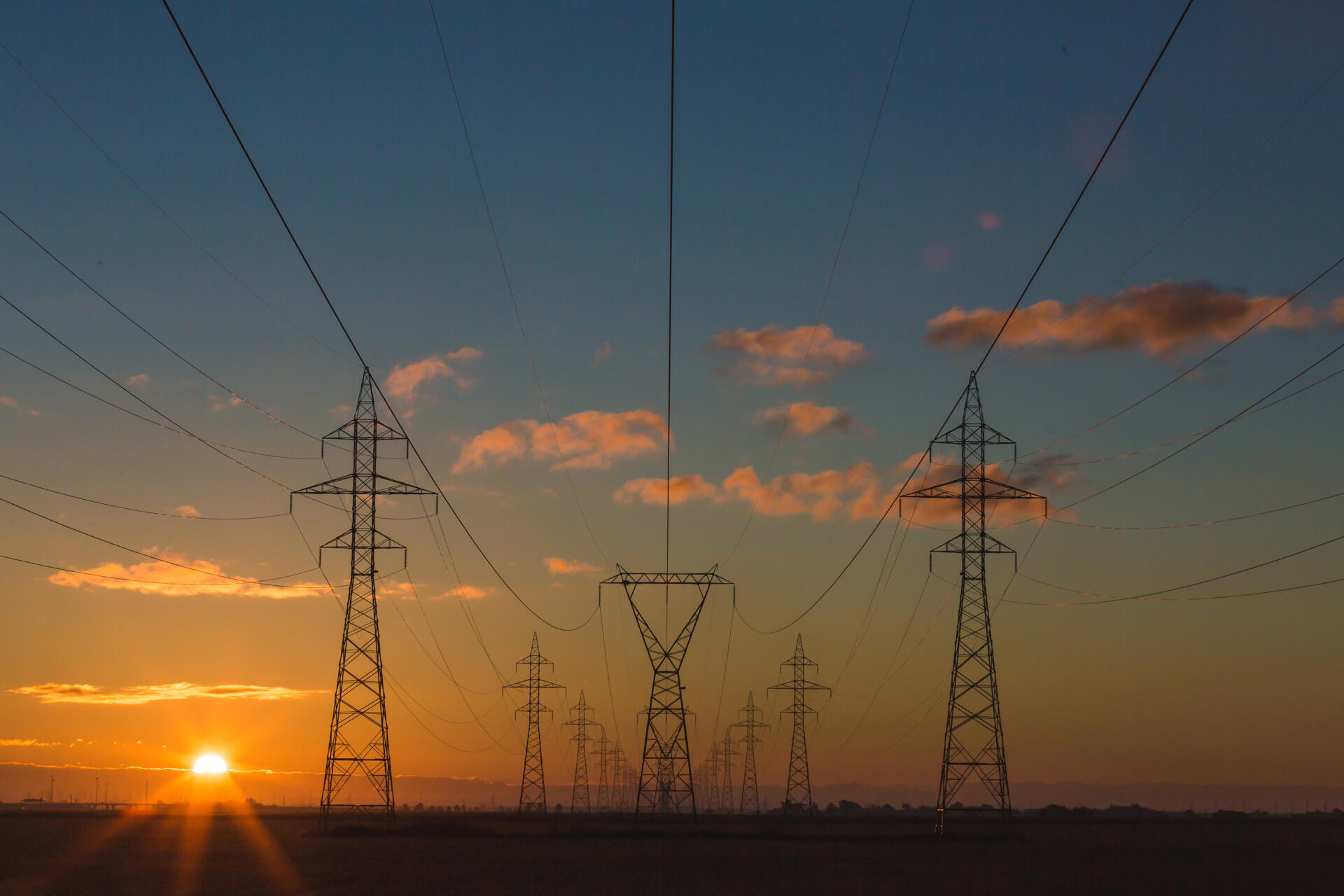
Electricity Consumption Predictions. While there are multiple excellent integrated electricity masterplanning tools, all of them suffer from limited data on electricity consumption growth. Using a broad library of historic consumption data, satellite imagery and other big data sources, and custom deep learning models, we are creating an open service with API access to electricity consumption growth predictions for individual businesses and residences. Our work initially targets East Africa with a goal to extend throughout the continent and beyond to developing regions in South and Southeast Asia. Better data will enable scarce resources to go further.

Electricity Reliability from Satellite Data. Beyond access, the availability and predictability of reliability is crucial for community and economic growth. We are developing a novel technique to provide wide-area, long-term estimates of grid stability across sub-Saharan Africa and South and Southeast Asia using daily data on nighttime illumination. We are pairing these data with our consumption growth models and also will release the data publicly for other applications from the community.
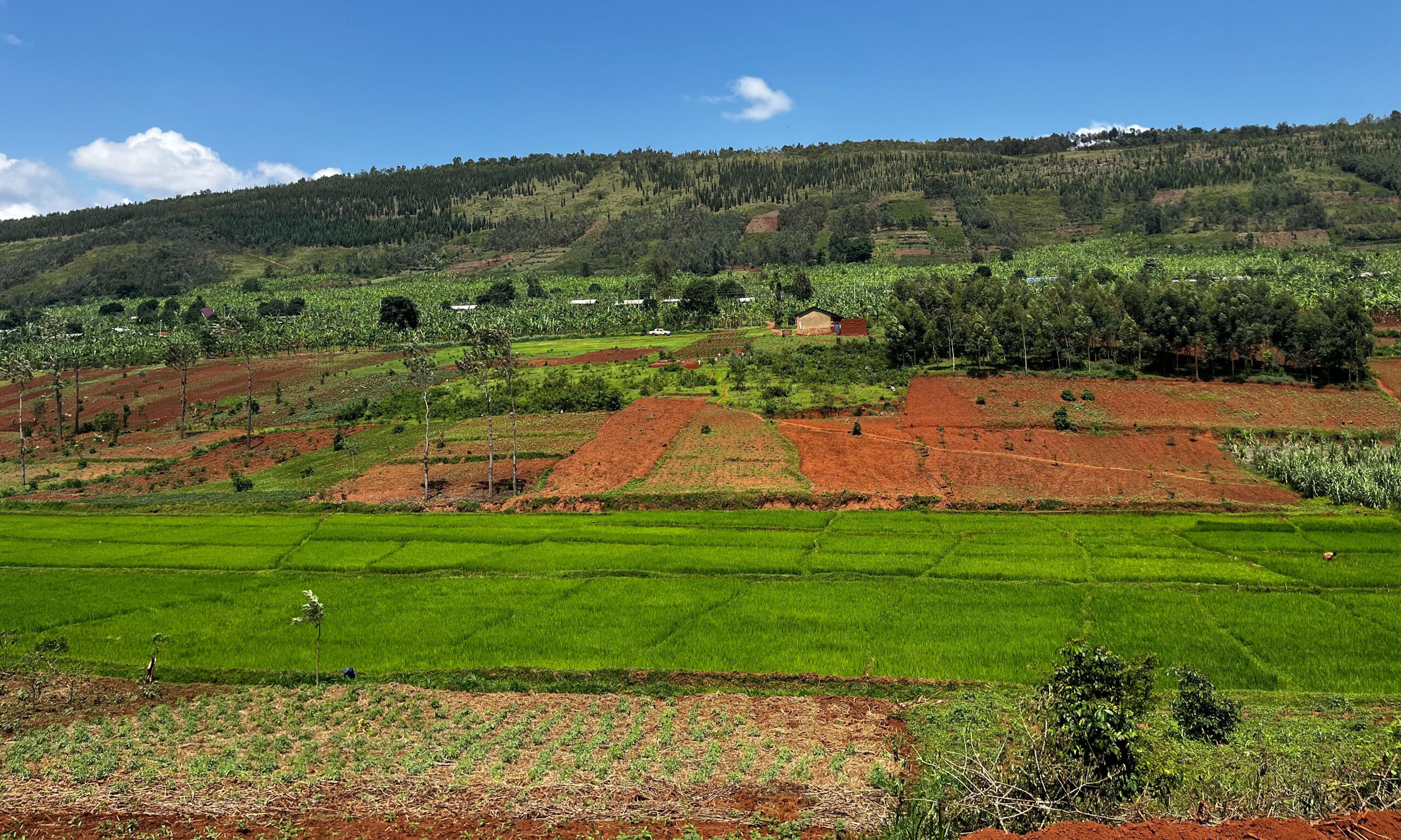
Opportunities at the Electricity-Agriculture Nexus. In many low-income settings, electricity is not the only bottleneck hindering economic growth, and there is substantial latent capacity for economic growth in the agricultural sector. To help unlock this growth, we aim to build techniques to uncover opportunities where targeted and coordinated investments can simultaneously address agricultural bottlenecks as well as energy bottlenecks. In the long term, we intend for this tool to provide inputs to integrated energy planning tools on prospective agricultural investments and their effect on electricity consumption.
PEOPLE
The e-GUIDE Initiative is a partnership of groups at five universities and one institution: the University of Massachusetts - Amherst, Carnegie Mellon University, Columbia University, Rochester Institute of Technology, University of Washington, and the Kigali Collaborative Research Centre. The work of the Initiative would not be possible without the generous support of The Rockefeller Foundation.
Principal investigators
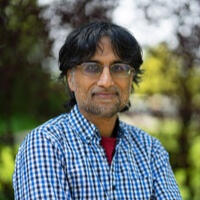
Jay Taneja
STIMA Lab
UMass Amherst
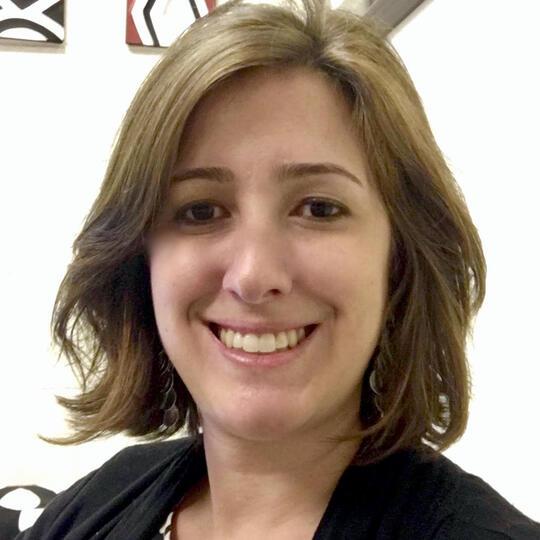
Paulina Jaramillo
Green Design Institute
Carnegie Mellon
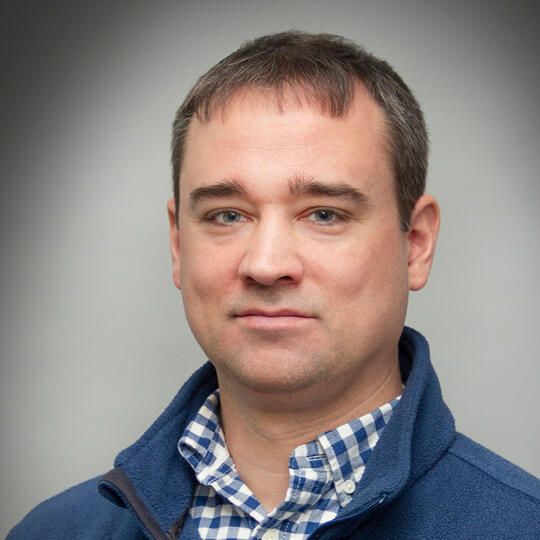
Nathan Williams
Golisano Institute of Sustainability
Rochester Institute of Technology

Vijay Modi
QSEL
Columbia
STAFF

Deborah Braide
Research Coordinator
Nigeria
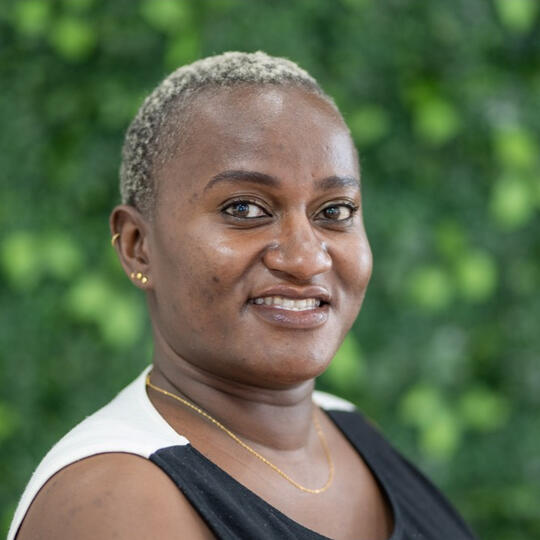
Cerella Sarry
Regional Coordinator
East Africa
CURRENT STUDENTS
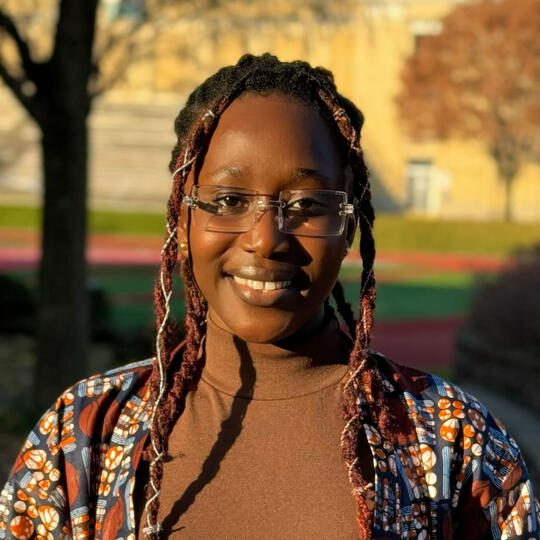
Sanuratu Koroma
PhD Student
UMass Amherst
Interview
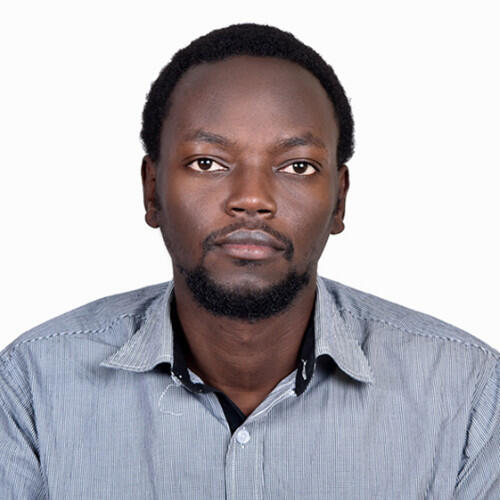
Bob Muhwezi
PhD Student
UMass Amherst
Interview
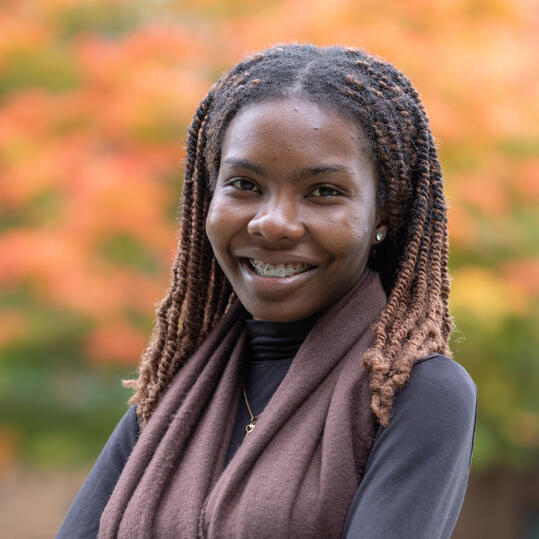
Miquilina Anagbah
PhD Student
University of Washington
Interview

Massa Civian Kiki
PhD Student
UMass Amherst
Interview
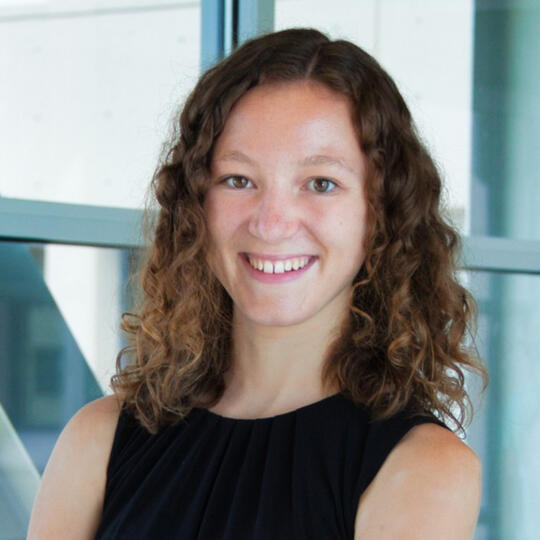
Emily Zuetell
PhD Student
Carnegie Mellon
Interview
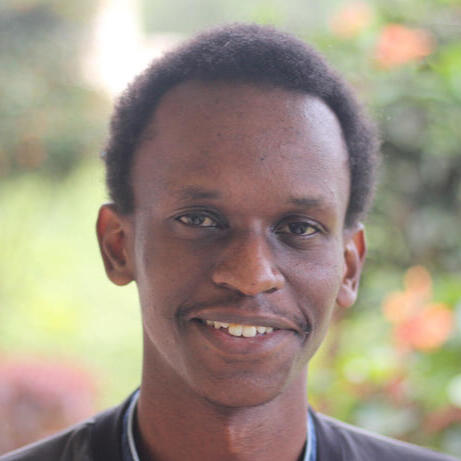
Joel Mugyenyi
PhD Student
Columbia
Interview
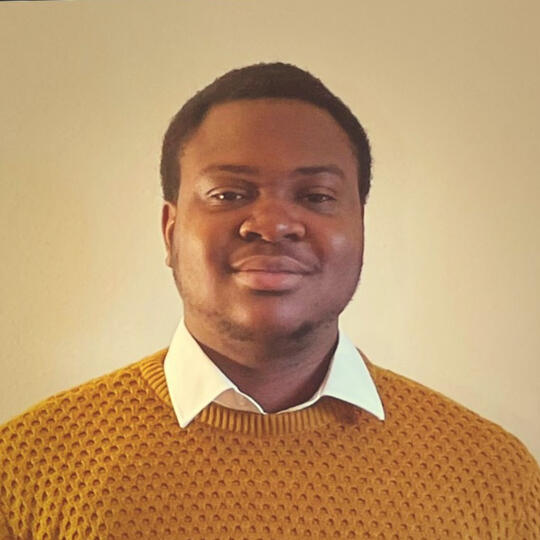
Raji Tunmise
PhD Student
RIT
Interview
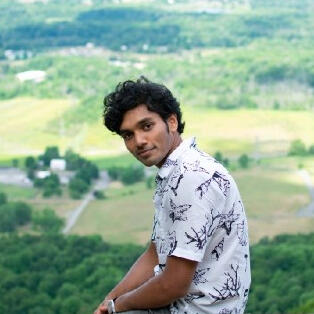
Hasan Siddiqui
PhD Student
Columbia
Interview
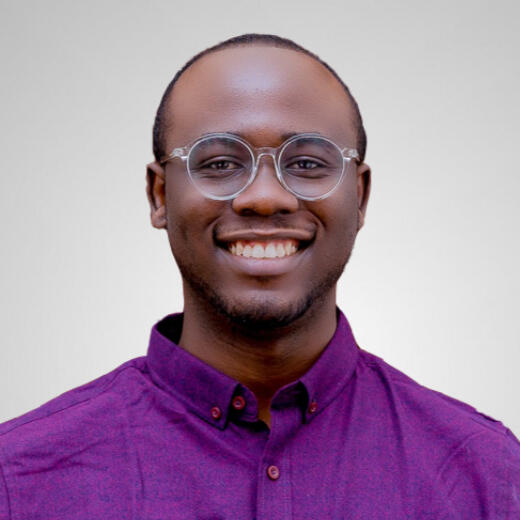
Courage Ekoh
PhD Student
RIT
Interview
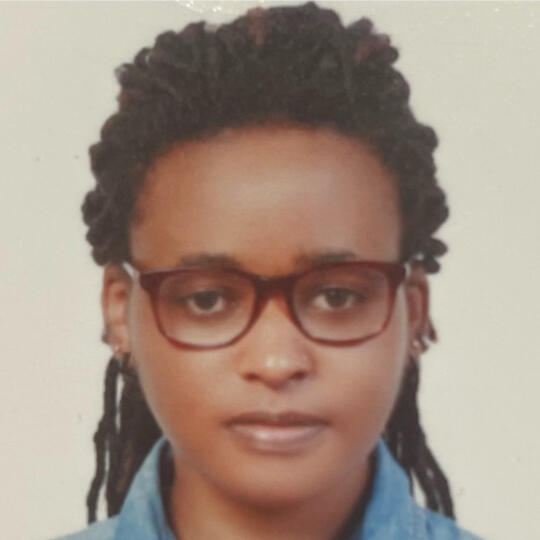
Nthenya Kyatha
PhD Student
UMass Amherst
Interview
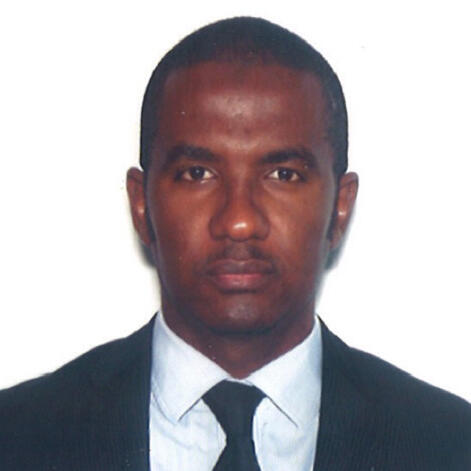
Musaab Ali
PhD Student
UMass Amherst
Interview
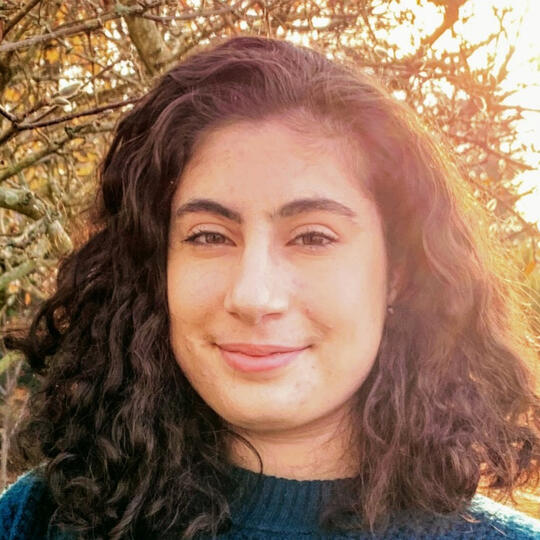
Aya Alayli
PhD Student
University of Washington
Interview
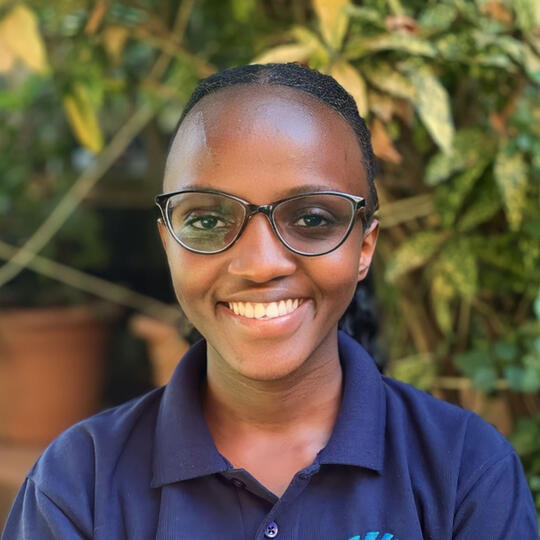
Sylvia Imanirakiza
PhD Student
UMass Amherst
Interview
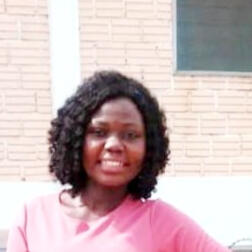
Loretta Nyarko
PhD Student
RIT
Interview
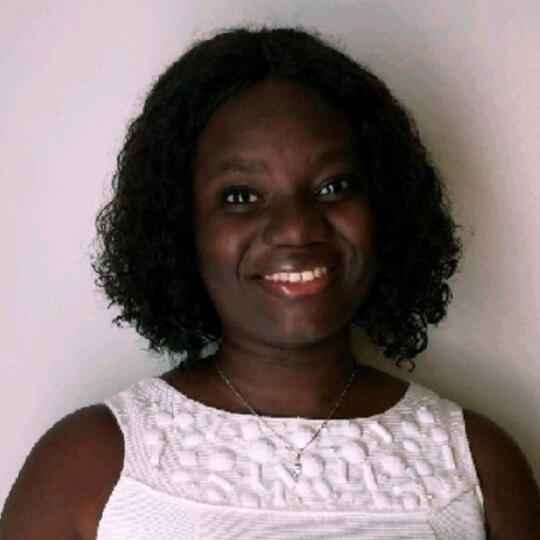
Nana Akua AgyemangSereboo
PhD Student
UMass Amherst
Interview
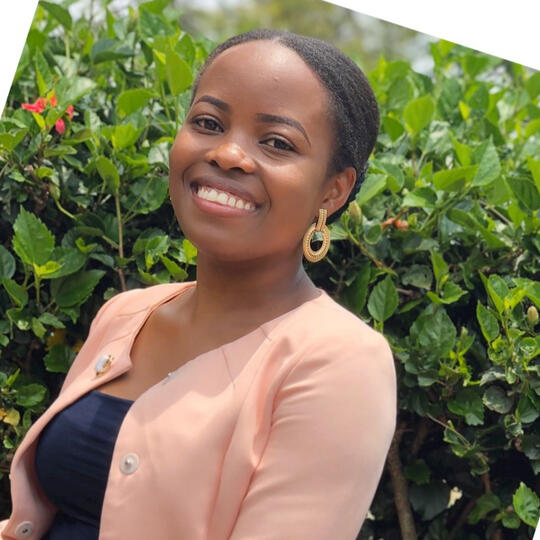
Eliane Nirere
PhD Student
University of Washington
Interview

Nana Oye Ndaase Djan
PhD Student
Carnegie Mellon
Interview

Fidelis Bologo
PhD Student
Carnegie Mellon
Interview
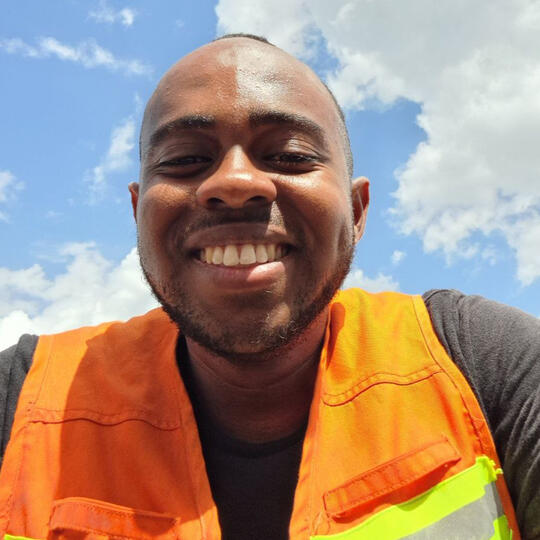
Kwame Donkor
PhD Student
University of Washington
Interview
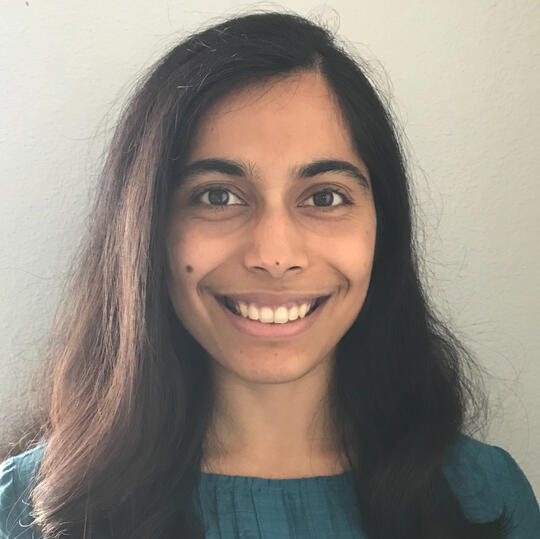
Ahana Mukherjee
PhD Student
University of Washington
Interview
ALUMNI
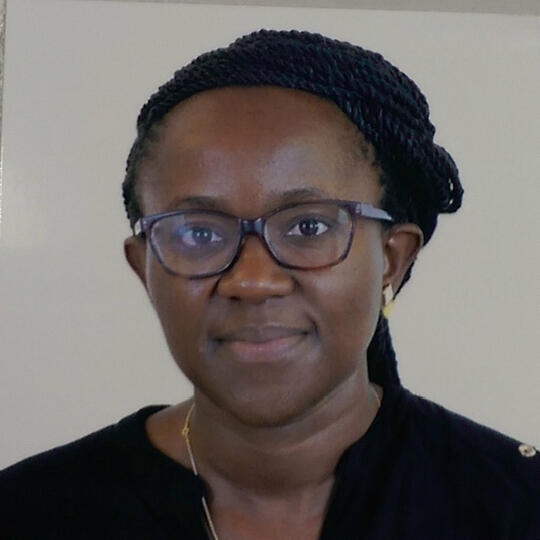
Simone Fobi
Microsoft AI for Good
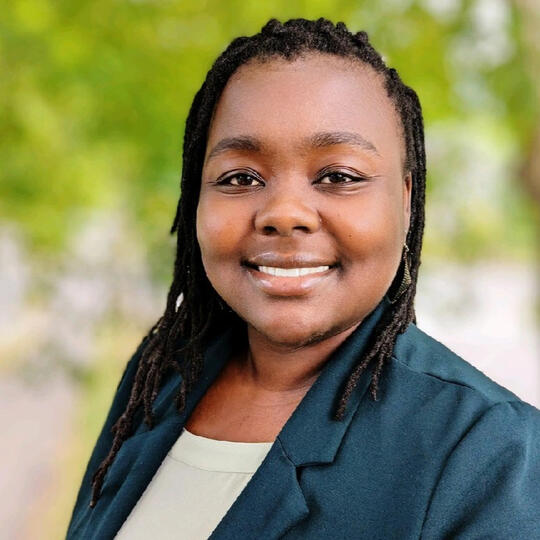
June Lukuyu
University of Washington
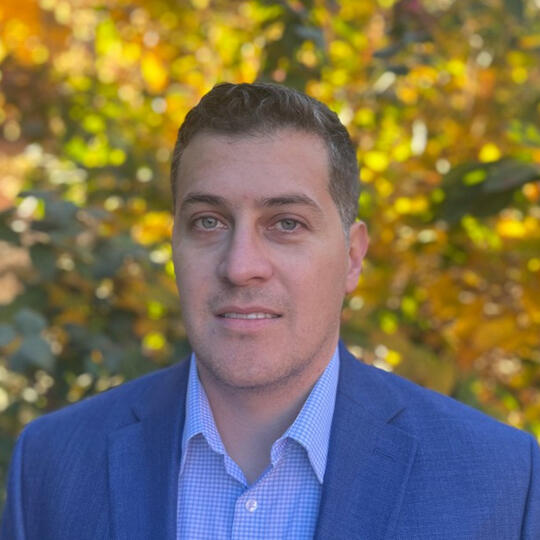
Jorge Izar
National Energy Technology Lab
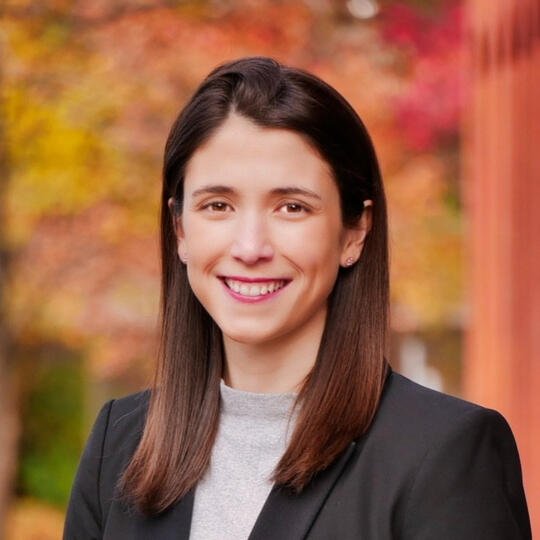
Ana Lucia Caceres
Boston Consulting Group
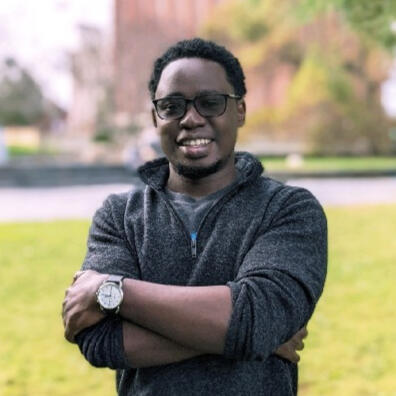
Aggrey Muhebwa
Stanford University
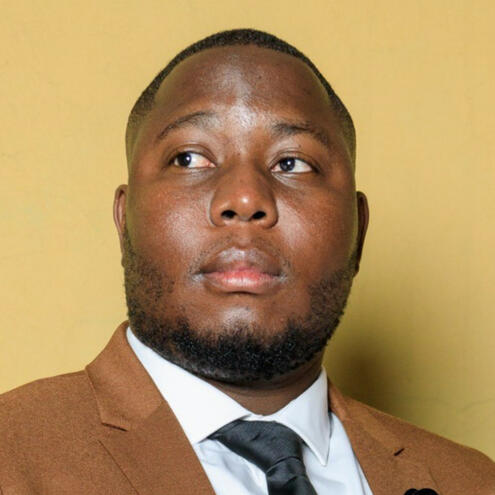
Lefu Maqelepo
ISO New England Inc.
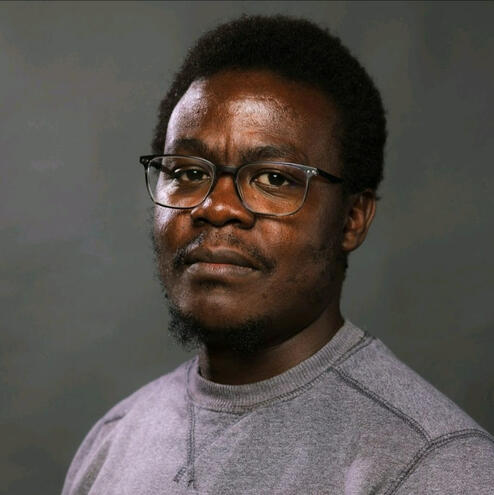
Fhazhil Wamalwa
San Francisco State University
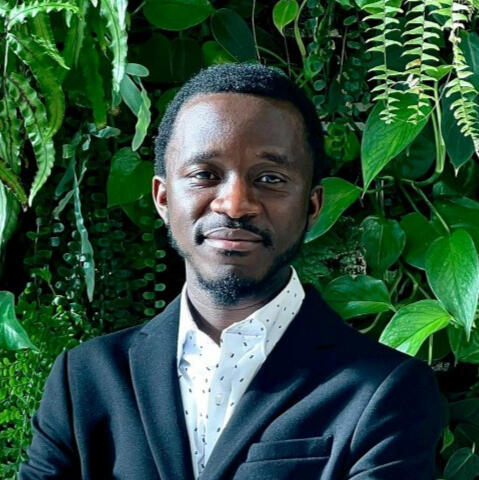
Mohamed Bangura
Toyota Material Handling
Outputs
Topic: A data driven approach to developing smart grids in developing countries
Topic: Electricity consumption in developing countries
Paper: “A Longitudinal Study of Electricity Consumption Growth in Kenya.” Simone Fobi, Varun Deshpande, Samson Ondiek, Vijay Modi, and Jay Taneja. Energy Policy, 2018. See graphic on consumption growth here.
More items to come - keep an eye on this space!
Contact
We'd love to hear from you with questions, comments, and interests in collaboration!
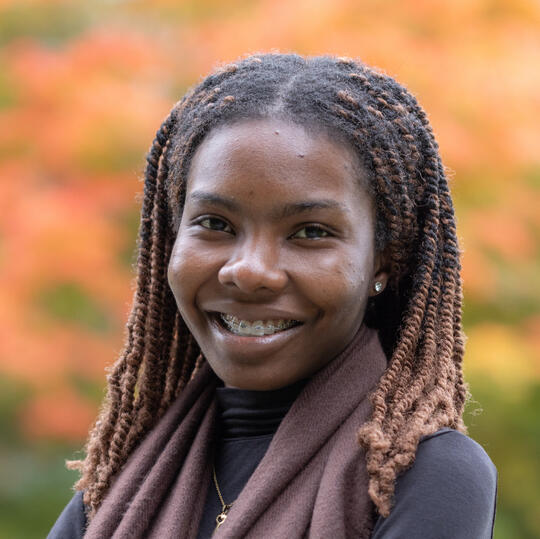
Interview with PhD Student - Miquilina Anagbah
By Cerella SarryQ: Brief background about yourself/PhD program?
A: I hold a Bachelor's degree in Electrical and Electronics Engineering from Ashesi
University in Ghana and a Master's degree in Electrical and Computer Engineering from Carnegie
Mellon University. After my Master's degree, I worked as an intern at the Mini-Grids Partnership at
SEforAll, an independent organization accelerating progress on the energy transition in emerging and
developing countries, where I contributed to mini-grid initiatives including the 2024 State of the
Mini-grid Market report. I am currently a Ph.D. student at the University of Washington.Q: Why did you decide to pursue a PhD/Research?
A: My decision to pursue a Ph.D. stems from two reasons: First, I have a genuine enjoyment
of research and learning driven by my curiosity and interest in solving complex problems. Second, I
aim to build specialized research knowledge that will aid in developing solutions for reliable
electricity access in developing countries. A Ph.D. allows me to investigate the dynamics of
electrification and clean energy transitions, helping me understand how to effectively address energy
poverty sustainably.Q: What does e-GUIDE mean to you?
A: e-GUIDE represents a diverse consortium of researchers collaborating to advance
research efforts and implement data-driven solutions to complex challenges in sub-Saharan Africa
and other developing regions. The thematic areas we focus on include electrification planning, grid
reliability, clean energy transition, and climate change mitigation and adaptation.Q: What do you think will be the most significant impact of e-GUIDE?
A: The most significant impact of the e-GUIDE initiative will be its research contributions to
developmental questions related to energy and climate change. This research could inform
governments and development stakeholders, guiding them in allocating limited resources for
maximized sustainable development.
Q: Tell me about your e-GUIDE project?
A: My project will focus on large-scale electrification planning in sub-Saharan Africa. It will
build on existing models and explore the long-term effects of interconnecting various electrification
modes
Q: What’s the status of your e-GUIDE projects thus far?
A:I am currently in the early phases of my research, concentrating on studying the literature
and engaging with experts to gain a better understanding of the problem scope.
Q: What are your materials and methods for accomplishing your project?
A: : I plan to utilize modeling and optimization techniques in my research. Additionally, I
might incorporate machine learning and data analytics into my approach.
Q: What are your major challenges in carrying out these projects?
A: One major challenge I face is the limited literature currently available on interconnection
in large-scale electrification planning. As a result, benchmarking my results against existing works
may be difficult.
Q: Have you figured out how to overcome these challenges?
A: I plan to interact with experts and key stakeholders in electrification planning to ensure
that my approach is practical and aligns with real-world needs in the field.
Q: What do you think the impact of your specific project will be?
A: My work has the potential to improve current approaches to large-scale electrification
planning for governments, development finance institutions, and regulators.. It could provide insights
into whether mini-grid and off-grid systems can provide power to the growing population without
ever being integrated in the larger grid. There may be some real opportunities.
Q: How do you think your project compliments other e-GUIDE projects?
A: I believe my project complements e-GUIDE's initiatives in rural electrification and
demand estimation, which could enhance the overall understanding of large-scale electrification
planning.
Q: What do you like most about your project?
A: I appreciate the fact that my project offers room for novelty, and I find the inherent
ambiguity to be energizing
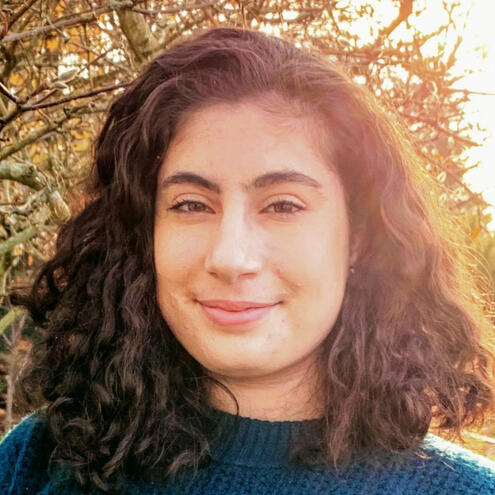
Interview with PhD Student - Aya Alayli
By Cerella SarryQ: Brief background about yourself/PhD program?
A: I received my Bachelor’s of Science in Electrical Engineering with concentrations in Sustainable Power Systems, Power Electronics, and Control Systems from the University of Washington. I am now pursuing a PhD in Electrical and Computer Engineering at the University of Washington under June Lukuyu. I have experience working in both the public sector at Seattle City Light, and in the private sector at a building design engineering firm. I have a strong passion for grid planning, sustainable development, policy, and energy equity. My current research interests center around community-led energy transitions, energy justice, and resiliency.Q: Why did you decide to pursue a PhD/Research?
A: I’ve always been interested in pursuing a PhD. When I was an undergraduate student, I worked on two research projects and I greatly enjoyed the learning process and the opportunity to explore my own energy interests and questions. I feel like a PhD is the best way for me to continue to explore and pursue my passions and learn the skills I need to be an independent researcher. Throughout my PhD, I hope to work on projects that have long-term positive impacts and develop innovative approaches and policy to serve under-resourced communities within the context of sustainable development, climate and energy justice, and resilience.Q: What does e-GUIDE mean to you?
A: To me, e-GUIDE means an opportunity to connect and collaborate with researchers from different universities, all working within the common space of sustainable energy access. E-GUIDE provides me with a broader community, with members bringing together different perspectives, skills, and resources, and I am excited to contribute and engage with this community.Q: What do you think will be the most significant impact of e-GUIDE?
A: The interdisciplinary and cross-university collaboration of e-GUIDE provides important opportunities to positively impact the communities we work in and inform policy and planning approaches that address community needs and help work towards sustainable electricity development.Q: Tell me about your e-GUIDE project?
A: My project focuses on understanding what is driving energy transitions within the Pacific Northwest (PNW) region of the United States, particularly in rural and Indigenous communities. I am interested in understanding how the role of the initiator of these projects, whether it its communities or utilities, impacts the development, funding, and social and technical impact of energy transitions projects.Q: What’s the status of your e-GUIDE projects thus far?
A: I have been working on conducting a literature review and doing background research to familiarize myself with how community-led projects are developed, what projects are occurring in the PNW, and how utilities are approaching climate adaptation and resilience. I am currently working on beginning to contact key stakeholders from projects within Washington State to create a list of case studies for me to engage with on this project.Q: What are your materials and methods for accomplishing your project?
A: As my project is still in its early days, I do not have clearly defined materials and methods yet. I would like to engage in a mixed-methods approach, using both qualitative and quantitative methods.Q: What are your major challenges in carrying out these projects?
A: Beginning a research project is always difficult, especially as a first-year PhD student. There is a learning curve with regards to how to engage with the research project and craft a research question while acknowledging that the nature of the project will likely change as I keep working on it. It can be difficult to know what the next steps are to continue to make progress on this project.Q: Have you figured out how to overcome these challenges?
A: I have been focusing on creating achievable goals for each university term and a project plan for each term to ensure that I can make progress. I also communicate proactively with my advisor, June, and seek support and perspective from other members of our research lab.Q: What do you think the impact of your specific project will be?
A: My project will provide insights into the different factors that are driving energy transitions in rural and Indigenous communities within the PNW and help identify gaps and opportunities for supporting equitable decarbonization and resilience projects. I hope to use these insights to offer policy recommendations to guide inclusive and just energy transitions in the PNW.Q: How do you think your project compliments other e-GUIDE projects?
A: While most of e-Guide’s work is located outside of the United States, my project compliments e-Guide’s focus on rural electrification and is aligned with the mission of transforming the approaches used for planning and operations of electricity infrastructure.Q: What do you like most about your project?
A: I really enjoy the opportunity to work within and impact a region that I have grown up in. It is rewarding to learn more about different communities within Washington State and I am excited for the opportunity to learn more about what sustainable energy access and resilience means to them.
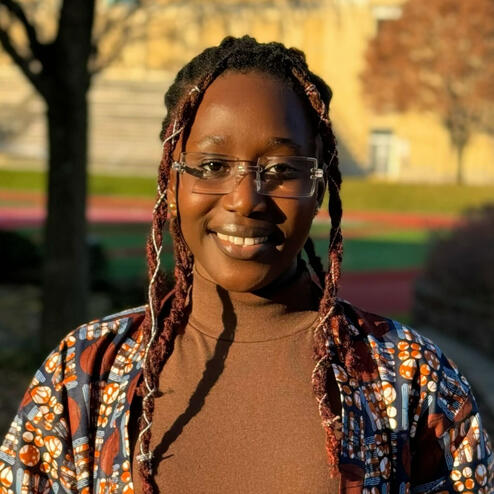
Interview with PhD Student - Sanuratu Koroma
By Cerella Sarry
Q: Brief background about yourself/PhD program?
A: I am currently a Computer Science Ph.D. student at the University of Massachusetts Amherst. I
am a research assistant in the STIMA Lab under the supervision of Prof. Jay Taneja. Prior to
starting my Ph.D. journey, I earned an M.Sc. in Electrical and Computer Engineering from
Carnegie Mellon University Africa and a B.Sc. in Electrical and Electronic Engineering from
Ashesi University. I also have two years of professional work experience as a metering engineer
at a mini-grid company and as an IT engineer at a telecom companyQ: Why did you decide to pursue a PhD/Research?
A: I decided to pursue a Ph.D. because I wanted to develop my skills and apply computing tools to
solve real-world problems that impact society. I saw research as the best way to achieve this. My
goal is to understand key concepts and leverage advanced computing tools to address challenges
in developing communities, where traditional solutions can be time- and cost-intensive.
Additionally, I aspire to teach in the future, and earning a Ph.D. is an important step toward that
goal.Q: What does e-GUIDE mean to you?
A: Looking at both the completed and ongoing projects in e-GUIDE, I see it as a space for students
and faculty who use research to drive development in emerging communities and collaborate
with like-minded researchers. I consider myself one of those individuals—I want my research to
be impactful and beneficial to communities like the one I come from.Q: What do you think will be the most significant impact of e-GUIDE?
A: Its contribution to the planning and development of areas both on a smaller and larger scale of
emerging communities around the globe.Q: Tell me about your e-GUIDE project?
A: I am working closely with my supervisor, Prof. Jay Taneja, to study urbanization in developing
countries and explore the development of a predictive tool for urban planning. Using satellite
data to track changes in buildings and construction at a granular level, our goal is to create a fast,
cost-effective, and versatile tool that can assist in planning for developing communities
worldwide, given the availability of relevant data.Q: What’s the status of your e-GUIDE projects thus far?
A: We have obtained some results using a temporal dataset that allowed us to study changes in
building development over a seven-year period. Our next step is to develop metrics that
effectively reflect our findings in alignment with our goals. Hence, I would say my research has
reached a pivotal point where the findings will shape the next steps and overall trajectory of my
work.Q: What are your materials and methods for accomplishing your project?
A: I would say that the main tools for my research are heavily based on Google’s research datasets
and tools such as Google Earth Engine. For now, the methods I use involve extensive data
analysis of open-standard geospatial data.Q:What are your major challenges in carrying out these projects?
A:The major challenges so far have been deciding which communities to start with and processing
the data in a way that accurately reflects the ground truth and provides meaningful insights.
Q:Have you figured out how to overcome these challenges?
A:We are currently testing various ideas and methods to help us reach a conclusion.
Q:What do you think the impact of your specific project will be?
A:I hope this project will be used to serve government planning agencies and even consulting
construction companies working in emerging communities.
Q:How do you think your project compliments other e-GUIDE projects?
A:I believe I could collaborate with others who work with raw satellite images to further develop
the application of this tool. Additionally, I believe this research could assist those working with
specific communities and areas by helping them understand how these areas have changed over
time and make rough population estimates without having direct, in-person contact with the
communities.
Q:What do you like most about your project?
A:I like that my project is versatile and could be used in several communities.

Interview with PhD Student - Paa Sey
By Joel MugyenyiQ: Brief background about yourself/PhD program?
A: I am a 4th-year PhD student in Mechanical Engineering at Carnegie Mellon University,
focusing on air quality assessment in data-sparse regions, particularly in Sub-Saharan
Africa. My work involves developing methods for high-resolution PM2.5 exposure estimates
and determining causal pathways for pollutants using satellite data, chemical transport
models, and ground-based measurements.Q: Why did you decide to pursue a PhD/Research?
A: Since graduating high school, I have planned to pursue a PhD. I have always been
fascinated by basic and applied research and wanted to develop the expertise necessary to
make a meaningful impact in my field. Focusing on air quality assessment in regions like
Sub-Saharan Africa allows me to apply advanced models and satellite data to address
significant public health challengesQ: What do you think will be the most significant impact of e-GUIDE?
A: As part of the larger e-GUIDE group, I believe the most significant impact will be providing
Sub-Saharan Africa with the necessary information to develop sustainably and equitably.
The group aims to focus research on critical areas that can help inform policies and
decisions, ensuring that the region can access data and insights supporting long-term
growth while addressing critical environmental and social challenges.Q: Tell me about your e-GUIDE project?
A: My e-GUIDE project centers on developing high spatial resolution PM2.5 concentration
estimates across Africa by leveraging satellite data and demonstrating causal pathways
between various atmospheric pollutants. I use satellite remote sensing data, chemical
transport models like GEOS-CF, and machine learning techniques to generate highresolution air quality estimates. Additionally, I apply advanced causal inference methods to
identify the relationships between pollutants and environmental factors. I aim to provide
policymakers with actionable insights to guide effective air quality management and
interventions.Q: What’s the status of your e-GUIDE projects thus far?
A: Thus far, I have completed the development of a model that significantly improves the
spatial resolution of PM2.5 estimates from 25 km to 1 km for the African continent. I am
validating these estimates using ground-based data and further analyzing PM2.5 exposure
disparities across regions. Manuscripts detailing this work are in progress.Q: What are your materials and methods for accomplishing your project?
A: For my project, I collect data from various sources, including the GEOS-CF chemical
transport model, satellite datasets (MODIS, Sentinel-5P), and ground-based sensors. I
employ machine learning regression models to downscale PM2.5 estimates to a 1 km
resolution. I validate these models using cross-validation techniques and comparison with
ground-based monitoring data.Q: What are your major challenges in carrying out these projects?
A: One of the major challenges is the limited availability of ground-based sensor data for
validation, especially in rural and suburban areas of Africa. The models rely heavily on
satellite and chemical transport model data; any inaccuracies in these datasets can
introduce errors in the downscaled estimates. A larger dataset of sensors would allow for
better validation of the methods.Q: Have you figured out how to overcome these challenges?
A: I have employed validation techniques similar to those of others who have done work in
data-sparse regions. We also included a comparison with data from reference monitors
where our trained models were validated with this ground truth. I also use causal inference
techniques to understand better the relationships between pollutants and environmental
factors, which helps improve model accuracy.Q: What do you think the impact of your specific project will be?
A:The impact of my project will be a more accurate understanding of PM2.5 exposure across
Africa, enabling policymakers and health organizations to address air quality issues more
effectively. By providing high-resolution estimates, my work will help identify pollution
hotspots and inform targeted interventions, ultimately improving public health.Q: How do you think your project compliments other e-GUIDE projects?
A: My project complements other e-GUIDE projects by providing critical environmental data
that can be integrated into broader energy and environmental assessments. For example,
understanding air quality can influence decisions related to energy usage, urban planning,
and public health interventions. The high-resolution spatial data generated in my project
can be combined with other e-GUIDE outputs to create more comprehensive models for
sustainable development.
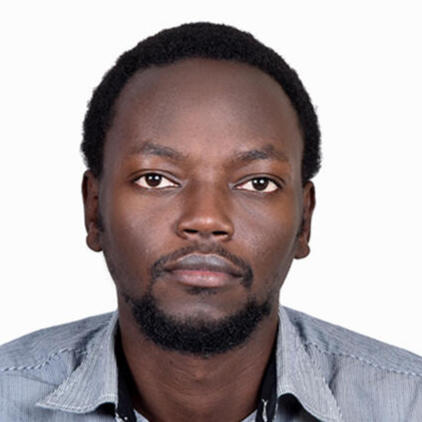
Interview with PhD Student - Bob Muhwezi
By Joel MugyenyiQ: Brief background about yourself/PhD program?
A:I am from Rwanda. I previously worked with EDCL in Rwanda working on optimization models for long term capacity expansion of generation looking at the least cost combination of generation plants up to 2030. I also worked on transmission expansion projects for both HV and MV lines. I then joined STIMA labs at the start of 2019.Q: Why did you decide to pursue a PhD/Research?
A:The work STIMA lab does is very close to the kind of work I was doing in Rwanda and I realized the research being done here could answer many of the challenges I was facing in my day to day work in Rwanda. For example, in demand prediction we were mainly relying on European models that were not well suited for the demand growth patterns in Rwanda. STIMA lab work is focused on the challenges unique to energy access in the developing world which is what drew me to them.Q: What does e-GUIDE mean to you?
A:In my perspective, e-GUIDE is an initiative that addresses energy challenges in the developing world context ranging from electricity access, planning to effectively utilizing the limited resources available and ensure sustainability in energy provision.Q: What do you think will be the most significant impact of e-GUIDE?
A:I think the demand prediction work will be helpful for utilities to come up with best practices.Q: Tell me about your e-GUIDE project?
A:My work is not quite clear cut since I am at the beginning of my program. At the moment I am analyzing data for small commercial consumers of electricity looking at patterns in consumptions over the past couple of years. I am studying various factors that could affect their electricity consumption such as geospatial location, year of connection etcQ: What’s the status of your e-GUIDE projects thus far?
A:I am working on data analysis looking for trends in a variety of consumption data.Q: What are your materials and methods for accomplishing your project?
A:I will be employing python and python libraries to carry out data analysis for the initial stage of the projectQ: What are your major challenges in carrying out these projects?
A:Since I am at the start of my program, I will need to get comfortable with balancing my classes and research work in a way that I can offer each sufficient attention.Q: Have you figured out how to overcome these challenges?
A:Not yet but I am in the process of figuring out how to best balance my classes and research workQ: What do you think the impact of your specific project will be?
A:I think the best impact will be how utilities carry out demand prediction for communities that have never had electricityQ: What do you like most about your project?
A:I get to work with lots of datasets. Having worked in electricity planning previously, I am excited about the impact my work will have on electricity utilities.
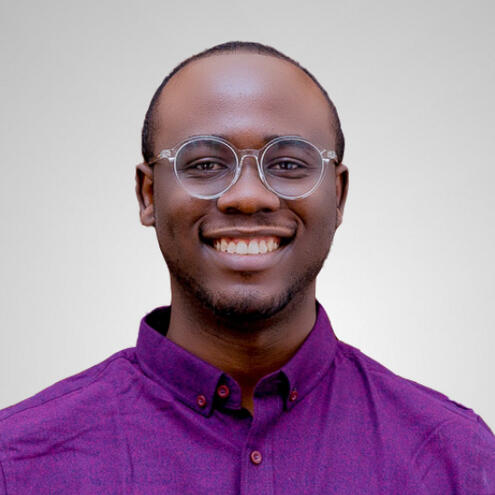
Interview with PhD Student – Courage Ekoh
By Cerella Sarry
Q:Brief background about yourself/PhD program?
A:I am currently enrolled in the Sustainability PhD program at RIT. I had a bachelor’s in industrial engineering and then a master’s degree in information technology with a focus in applied machine learning. Prior to starting a PhD, I had experience working in fintech and the energy industry through a combination of internship and full-time positions.
Q:Why did you decide to pursue a PhD/Research?
A:My decision to do a PhD was due to several reasons. First, I was at a position were my previous job seemed too routine for me and I wanted to tackle tougher problems. Secondly, I was interested in using my skills in machine learning to solve problems in the energy space, and this PhD program happened to present that opportunity. Lastly, at the time, I felt I needed an opportunity to immerse myself in original thinking and solving complex problems from scratch. A combination of the above reasons made me decide to pursue a PhD.
Q:What does e-GUIDE mean to you?
A:To me, e-GUIDE is a group of driven researchers, scientists, and staff, working together to proffer solutions to some of the toughest problems in the developing world including, energy poverty, energy access, climate change, and similar problems.
Q:What do you think will be the most significant impact of e- GUIDE?
A:In an ideal situation, I would love the outcomes of my study to be a consideration for mapping electricity projects. Government and non-government organization can predict the outcome of energy projects without conducting expensive surveys, or waiting for years to get meaningful data they can work with.
Q:Tell me about your e-GUIDE project.
A:I am currently working to understand electricity consumption patterns and enablers to this. In this “umbrella”, I am looking into things like understanding how other kinds of infrastructure like roads, building clusters, elevation, etc. and how they might relate to electricity consumption patterns of communities. I am also looking into what we term “latent demand” for electricity in areas where there is no access, high electricity bills, or high utilization of personal generators.
Q:What’s the status of your e-GUIDE projects thus far?
A:I am still in the early phases of my research.
Q:What are your materials and methods for accomplishing your project?
A:Now, I am doing a lot of data analysis. Sometimes, I have to visualize spatial data with tools like Geopandas or QGIS, and interpret some remotely sensed data as well.
Q:What are your major challenges in carrying out these projects?
A:I would say getting stuck with hardly any work out there that addresses the specific issue I am working on is one of my biggest challenges at this point.
Have you figured out how to overcome these challenges?
I cannot say I have totally figured it out, otherwise, I might as well be done with my PhD. I feel it is a process, you get stuck, then you get a breakthrough, then you get stuck again, and the cycle continues.
Q:What do you think the impact of your specific project will be?
A:My project will impact how governments and utility companies plan energy projects in a way that stimulates productive use. Non-government organizations can also benefit from the result of this work.
Q:How do you think your project compliments other e-GUIDE project?
A:Some of the methods I am working with like identifying different kind of infrastructure with geospatial data and machine learning techniques have been extensively used by some other students in the e-guide. Hopefully, the work I do will also serve as foundation to future researchers in e-GUIDE.**
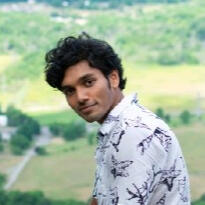
Interview with PhD Student –Hasan Siddiqui
By Cerella Sarry
Q:Brief background about yourself/PhD program?
A: I have a bachelor’s degree in Mechanical Engineering from Ghulam Ishaq Institute of Engineering Sciences and Technology in Pakistan. During my Master’s at Columbia University, I started working with Prof Modi’s research group at Columbia which led to the PhD opportunity of which I am currently a part of.
Q: Why did you decide to pursue a PhD/Research?
A: After completing my Master’s, I was working as a researcher at Quadracci Sustainable Engineering Lab at Columbia. I was fascinated by the work the team had done in the past and was doing in sub- Saharan Africa and I wanted to be a part of it. The PhD track was a great opportunity to immerse myself in the world of remote sensing of which I had no prior experience with and work in the sub-Saharan context and make an impact.
Q: What does e-GUIDE mean to you?
A: e-GUIDE is a group of researchers that work on the important questions of energy access for productive use. This requires not only identifying current household and agriculture energy demands but also studying energy consumption growth and trends over time. These studies help facilitate grid planning studies and influence policy making in these areas.
*Q: What do you think will be the most significant impact of e- GUIDE?
A: The development of open-source computational tools and data products that facilitate policy decisions and aid infrastructure planning to provide energy access is the most significant impact.
Q: Tell me about your e-GUIDE project?
A: My current project is focused on detecting dry season irrigation in areas that exhibit a prolonged dry season. This requires labeling through examining a suite of satellite imagery products, cleaning the data, training classifiers with labelled data and predicting over regions
of interest.
Q: What’s the status of your e-GUIDE projects thus far?
A: I have developed a dry season irrigation map for Northern Nigeria which has a prolonged dry season. Work is underway on producing a similar map for Burkina Faso and other countries in the Sahel where the methodology is applicable.
Q: What are your materials and methods for accomplishing your project?
A: I mainly use Sentinel 2 and MODIS imagery with other data products such as CHIRPS. Most of the analysis I do is based on Google Earth Engine and python for working with these satellite imagery data products and development of open-source tools. I’m reliant on Google Cloud Platform for cloud infrastructure to scale up computations. The other tools I use are ENVI for advanced computations from the satellite imagery and QGIS for quick visualizations and map making.
Q: What are your major challenges in carrying out these projects?
A: Scaling the approach is a major challenge as collecting visual truth labels from examining satellite imagery and then processing the data and preparing imagery takes time. Having good ground truth data is also essential to verify the performance of classifiers and these are rarely ever available.
Q: Have you figured out how to overcome these challenges?
A: Atlas AI is helping to collect the visual truth labels for irrigated and non-irrigated polygons from different regions by training a team of enumerators to scale up the process. This means I can work on processing the data, classifier training and downloading imagery for predictions. Some future surveys will help in acquiring ground truth data to validate the results of the models.
Q: What do you think the impact of your specific project will be?
A: The direct output of current work is a data product of dry season irrigation map that is going to be used by other members of the e-GUIDE to understand agriculture demand. This helps in infrastructure planning to improve energy access in sub-Saharan Africa.
Q: How do you think your project compliments other e-GUIDE projects?
A: Analysis of agriculture demand and energy consumption requires knowing where the irrigation clusters are present. Hence my project on dry-season irrigation will compliment other e-GUIDE projects that are working on analyzing the agriculture load and some of the e-GUIDE
members have already expressed an interest my dry-season irrigation data product.
Q: What do you like most about your project?
A: I get to do national-scale analysis and, in some cases, even continental-scale analysis (such as the Sahel) by working on large geospatial datasets. I also find great satisfaction in the fact that my data products will influence policy decisions in sub-Saharan Africa and
improve lives through energy access
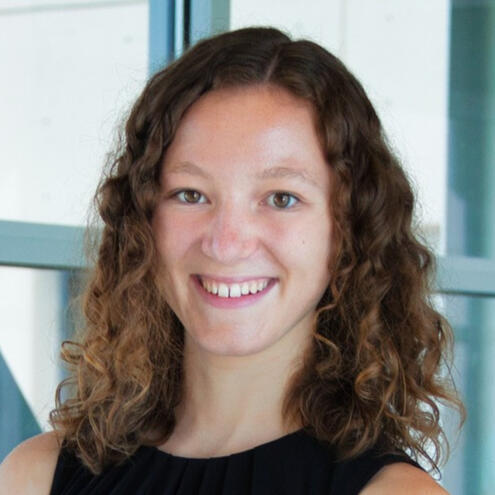
Interview with PhD Student – Emily Zuetell
By Cerella Sarry
Q: Brief background about yourself/PhD program?
A:I hold bachelor's degrees in Mechanical Engineering and Applied Math from the University of Colorado, Boulder. I am currently working on a joint Ph.D. at Carnegie Mellon University in Engineering and Public Policy/Civil and Environmental Engineering. I have long been interested in energy and sustainable development, interning at the National Renewable Energy Lab, working on wind farm reliability, and spending time in Nepal with Engineers Without Borders implementing and monitoring rural water distribution systems.
Q: Why did you decide to pursue a PhD/Research?
A:After completing my undergraduate degree, I knew I wanted to pursue an interdisciplinary research career and continue learning and building skills to research solutions to real-world challenges. The Ph.D. with Dr. Paulina Jaramillo and e-GUIDE offered the opportunity to work on critical problems in sustainable development and climate and learn from and collaborate with the incredible group of e-GUIDE researchers!
Q: What does e-GUIDE mean to you?
A:e-GUIDE is a unique initiative that brings together an interdisciplinary team of passionate students, professors, and research staff across fields, research interests, and backgrounds to enable complementary research toward a common goal of addressing global challenges in sustainable development and electrification. The initiative makes it possible to conduct action-oriented research and overcome challenges in applying research to developing economies.
Q: What do you think will be the most significant impact of e-GUIDE?
A:The most significant impact of e-GUIDE will be timely, consistent, inclusive data to inform infrastructure planning and maintenance decisions. Reliable, accessible data will be especially important in the current period of decisions and planning around rapid urbanization, electrification, and adaptations for climate change.
Q: Tell me about your e-GUIDE project?
A:My project looks at how we can use long-term historical satellite imagery to construct high-resolution models of changes in land use and the urban form of cities to inform planning decisions, monitor changes from interventions, and conduct risk assessments due to climate change. I am also interested in how we can make machine learning pipelines for satellite imagery more transparent and interpretable to improve performance and acceptance by policymakers and stakeholders.
Q: What's the status of your e-GUIDE projects thus far?
A:I am nearing completion of my first project, modeling socioeconomic outcomes from long-term changes in land cover. I am in the early stages of my next project on urban morphology and climate risk. We are currently constructing a dataset of building footprints and roads in East Africa over the past 15 years. We are then preparing for analysis and incorporating the urban morphology data into existing models for climate risk.
Q: What are your materials and methods for accomplishing your project?
A:I am working with pre-trained deep learning models to extract context-specific data from satellite imagery about changes in land cover and urban morphology, like building footprints, roads, and agriculture. We will then combine these datasets with climate, weather, and economic models to inform long-term infrastructure planning decisions. My goal is to operationalize existing models to understand their capacity and limitations in meeting the needs of decision-makers and target future work.
Q: What are your major challenges in carrying out these projects?
A:Limited data in our study area, especially reliable, historical ground truth data, makes it challenging to train and validate complex models. Another more exciting challenge is that deep learning models are improving and becoming accessible incredibly quickly, so staying on top of those developments and efficiently validating and integrating them into our work is an ongoing aim.
Q: Have you figured out how to overcome these challenges?
A:I have navigated these challenges by drawing on experience and tools from e-GUIDE researchers. We are working on using transferable pre-trained models and very high-resolution satellite imagery to construct baseline datasets that would be infeasible to do by hand and help us better specify the specific ground-truth data needed for validation.
Q: What do you think the impact of your specific project will be?
A:My project aims to establish an accessible framework from freely available data to assess and monitor different urban development patterns over time. This framework can be used to improve future climate-resilient infrastructure planning and collect actionable data about past interventions.
Q: How do you think your project compliments other e-GUIDE projects?
A:In the Engineering and Public Policy program at CMU, we focus on the translation of technology and data to policy and implementation. We also have a strong focus on the socioeconomic impacts of technology and policy. My project complements the other e-GUIDE projects by broadly applying the models from other researchers on the team and incorporating methods and ideas from decision-making and economics.
Q: What do you like most about your project?
A:I love that my project combines different disciplines and scales to better understand complex challenges in sustainable development and climate change that directly impact people’s lives. It’s exciting to use cutting-edge methods in deep learning, engineering, and economics to inform decisions about human-scale impacts from the vast amount of data from images captured from space over decades.
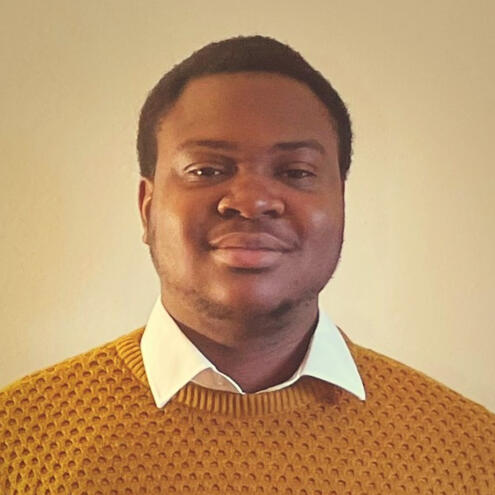
Interview with PhD Student – Tunmise Raji
By Cerella Sarry
Q: Brief background about yourself/PhD program?
A:I was born and brought up in Ibadan, Nigeria. I hold a Bachelor's degree in Electrical and Electronics Engineering from the University of Ibadan and a Master's degree in Electrical and Computer Engineering from Carnegie Mellon University Africa, Rwanda. After my Master's degree, I worked as a Technical Analyst at Equatorial Power, an energy development company based in Uganda, where I worked on energy access projects in East and Central Africa. I am currently a Ph.D. student at the Golisano Institute of Sustainability at the Rochester Institute of Technology.Q: Why did you decide to pursue a PhD/Research?
A:My upbringing in Nigeria, marked by the challenges posed by an erratic power system, has made me passionate about seeking solutions to ensure access to reliable electricity access which has further influenced my professional and educational pursuits. Working at Equatorial Power exposed me to the power industry's interconnectedness with the broader facets of community development. Pursuing a Ph.D. offers an opportunity to investigate the dynamics of energy systems and to better understand how this sector can be harnessed to propel development in sub-Saharan Africa.What does e-GUIDE mean to you?
A:To me, e-GUIDE represents a collaborative network of researchers converging to creatively tackle the complex developmental challenges prevalent in Africa.What do you think will be the most significant impact of e-GUIDE?
A:In my view, the eGUIDE initiative's most significant impact will lie in constructing knowledge repositories that enable governments and development finance institutions to strategically allocate limited resources across Africa in a way that maximizes benefits and enhances the population's resilience against the impacts of climate change.Q: Tell me about your e-GUIDE project?
A:In my research, I engage in a retrospective analysis of infrastructure growth, particularly the expansion of electrification across Africa. Employing techniques such as remote sensing, machine learning, and geospatial data science, we develop approaches for assessing the impact of these infrastructural deployments on development indicators. The overarching objective is to prove the viability of these infrastructure development endeavors.Q: What’s the status of your e-GUIDE projects thus far?
A:The project has several components. The first part which involves mapping out the expansion of electrification is being prepared for publication. For the second part, we are still in the data collection and hypothesis testing stage.Q: What are your materials and methods for accomplishing your project?
A:I primarily use remotely sensed data, including surface reflectance and nighttime lights, along with ground-truth data sourced from government agencies. These datasets serve as the foundation for constructing machine-learning models that simulate various phenomena such as electricity accessibility and vegetation growth patterns, among others.Q: What are your major challenges in carrying out these projects?
A:The biggest challenge revolves around data accessibility. Since the bulk of the data pertinent to infrastructure development that is required for my project is owned by government agencies, the process of obtaining access entails navigating through multiple layers, which can be time-consuming.Q: Have you figured out how to overcome these challenges?
A:My strategy for addressing these data access challenges primarily involves creating proxies that can model the phenomenon of interest. Also, we sometimes rely on informed assumptions for uncertain inputs, followed by conducting sensitivity analyses to improve our understanding of their potential impact.Q: What do you think the impact of your specific project will be?
A:My project holds the promise of offering insights into optimal infrastructure development in sub-Saharan Africa. By assessing the impact of various infrastructures on developmental indicators, the outcomes of my research can serve as valuable guidance for governments, aiding them in making informed decisions about prioritizing infrastructure development to achieve the greatest impact from their investments.Q: How do you think your project compliments other e-GUIDE projects?
A:While many other projects in e-GUIDE adopt a forward-looking approach by trying to simulate the benefits that we can get from electrification and the development of other infrastructure, mine looks back to learn from the past and see how access to electricity, in particular, has positively impacted lives.Q: What do you like most about your project?
A:I like the fact that my project is unique and some of the techniques that are required to answer the questions that we hope to answer are novel.
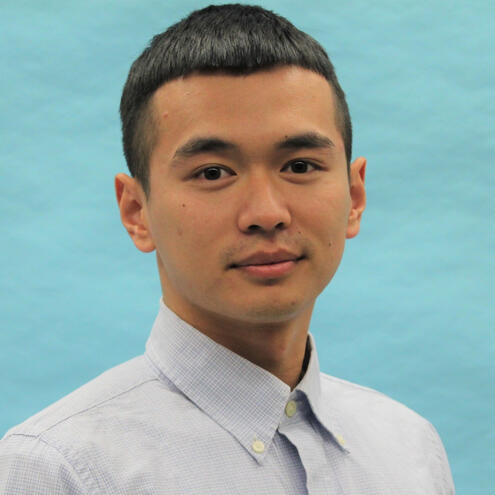
Interview with PhD Student – Yuezi Wu
By Cerella Sarry
Q: Brief background about yourself/PhD program?
A: I completed my bachelor's in energy engineering at Zhejiang University and later pursued a mechanical engineering master's at Columbia University. My doctoral studies initially centered on the decarbonization pathways study in New York State and the electricity expansion project in Paraguay. Later, my research shifted towards energy system design in sub-Saharan Africa, leveraging data and computational tools and incorporating practical scenarios.
Q: Why did you decide to pursue a PhD/Research?
A: Primarily, my curiosity and interest in unraveling the unknown led me to research. I also felt confident in my abilities to contribute to areas that were still seeking comprehensive engineer-style solutions. And, frankly, it's not easy for international students with limited experience in the U.S. to become involved in multidisciplinary projects like e-GUIDE studies. When Professor Vijay Modi presented the opportunity, I was eager to seize it.
Q: What does e-GUIDE mean to you?
A: e-GUIDE represents a diverse community of passionate individuals who share a common interest in energy research and problem-solving, particularly with respect to challenges faced in Sub-Saharan Africa. The team has PIs with extensive knowledge and brilliant students, providing me with significant insights that enhance my own research, and also give me motivation to devote to the research.
Q: What do you think will be the most significant impact of e-GUIDE?
A: e-GUIDE is crucial in establishing a bridge between the research capabilities in the US and the high demand for understanding socio-economic patterns in Sub-Saharan Africa. The depth and close-to-reality approach of these studies are significant.
Q: Tell me about your e-GUIDE project?
A: The project centers around productive energy uses like irrigation and commercial loads, which are more sustainable and form the foundation for local village electrification. These energy uses also offer a degree of flexibility. My work primarily involves constructing energy system design models that offer quantifiable solutions for rural electrification with domestic, irrigation, and commercial loads. The solutions provided include local connection options, sizing of solar-battery systems, and the arrangement of flexible loads.
Q: What’s the status of your e-GUIDE projects thus far?
A: I'm currently in the intermediate phase. I've developed an optimization model for mini-grids that handle both domestic and productive loads. I've also collected some real load and cost data from entities in Uganda. My current focus is refining the models to align more closely with real-world conditions, as well as figuring out how to deliver impactful results to the local entities involved.
Q: What are your materials and methods for accomplishing your project?
A: The materials are twofold: the first part includes data from real-world conditions such as load patterns and project costs; the second part is the perspectives of experts and local entities on the projects. The methodology involves initially understanding the local communities needs and identifying the challenges, then constructing linear or mixed integer programming models to simulate real-world problems.
Q: What are your major challenges in carrying out these projects?
A: The biggest challenge to me is how to model real-world problems effectively to provide useful information. Additionally, given that my background isn't in optimization, enhancing computation speed and accuracy poses a significant challenge for me.
Q: Have you figured out how to overcome these challenges?
A: I'm fortunate to have the support and assistance from my lab teammates and eGUIDE. Moreover, I have the opportunity to gain genuine insights from experts and locals in developing countries. Their collective help greatly enhances my ability to overcome these challenges.
Q: What do you think the impact of your specific project will be?
A: My project could offer a better understanding of how to improve the feasibility and sustainability of mini-grids serving productive energy uses and domestic needs. It aims to learn the role productive energy use (especially diesel motors), can play in the process of electrification.
Q: How do you think your project compliments other e-GUIDE projects?
A: My work designs energy systems through linear and mixed-integer programming, providing modeling flexibility, which is unique among eGUIDE projects.
Q: What do you like most about your project?
A: I love that our data-driven approach can actually yield insights applicable to real-world scenarios. And, it's rewarding to learn about the evolution of energy systems in developing countries.
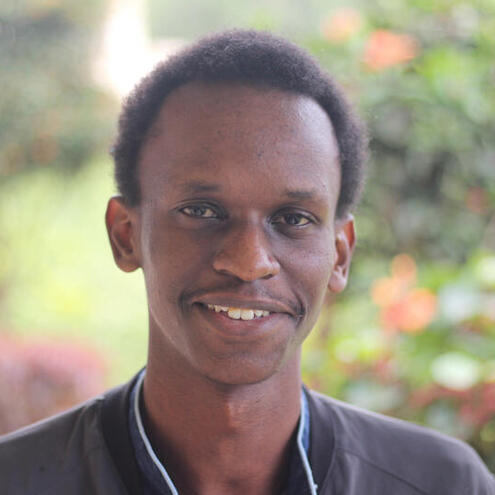
Interview with PhD Student –Joel Mugyenyi
By Cerella Sarry
Q:Brief background about yourself/PhD program?
A:I am a PhD student at Columbia University in my second year, second semester. I've been working in the energy sector since 2017 from Power systems and transition to minigrid systems and now I look at data from both sectors but primarily the grid and use that to study customer demand mostly focusing on East Africa.
Q:Why did you decide to pursue a PhD/Research?
A:Mainly curiosity and I quickly tire of doing the same things over a certain period and I guess PhD is dynamic you have to find projects that can be completely opposite to one another so you are always planning something new and trying out new ideas. So it is innovative and dynamic and a bit flexible so that was an attraction to me
Q:What does e-GUIDE mean to you?
A:It means a collaboration of like-minded researchers who are focused on addressing pressing energy issues in the developing world
Q:What do you think will be the most significant impact of e-GUIDE?
A:I think it will have an influence on policy going forward, given that so much of the continent is still un or under electrified it will have significant input on determining the policy for electrification of people have gotten electricity and also improving the quality for those who do, so it will be of significant not just for present-day but for future generation
Q:Tell me about your e-GUIDE project.
A:The project am working right now sometimes multiple projects simultaneously so I am going to go into actual details of the ones I am working on currently. The oldest is studying and consumption patterns using utility data from Rwanda so that looks at gaining a better understating of how consumers interact with electricity given their locations, income statutes then also focusing on what kind of appliances consumers typically utilise and how we can create interventions to increase appliance ownership in the country then what I am working on right now is looking at outages in Uganda and figuring the cost of an unreliable grid within the context of the country and what kinds of losses are being incurred by households, businesses and companies and also the utility itself and what should be done to mitigate that. Lastly, I'm looking at market dictation in the context of Uganda as well and focused on whether we can use remote sensing to dictate where markets are located in the country and that information could inform policies such as indication of such markets the demand centers so we can have more sustainable grid
Q:What’s the status of your e-GUIDE projects thus far?
A:It depends on the project. Some are in more advanced stages. I think I have two papers that are close to submission and my other papers are more in the initial stages. I have defined the topics and now I am in the implementation stage
Q:What are your materials and methods for accomplishing your project?
A:Data! Data! Data! That is, it. The more data I have access to the more likely of success. Then of course computing tools that comes in the form of servers that are offered by e-GUIDE and then lastly relationships with policy makers and implementers on ground to offer context and guidance on how direct research works.
Q:What are your major challenges in carrying out these projects?
A:I think right now I would say getting cooperation from our partners, especially on the industry side so we rely a lot. It is necessary in signing agreements to access data, and publication of papers so getting that feedback and input from industry partners is an ongoing challenge
Q:Have you figured out how to overcome these challenges?
A:No. I think the answer I will go with is what Simone gave me “It is a bucket of solutions so you try different interventions over time. Some work, some don’t but it is always trial and error
Q:What do you think the impact of your specific project will be?
A:I think my projects given that we work closely with industry partners we could have an input on how policy impacts directly people in the country consuming electricity so if the results of our research are taken under consideration it will have a significant rate on consumption across the country
Q:How do you think your project compliments other e-GUIDE project?
A:I think I'm not aware of all other e-GUIDE projects but the ones I am aware of, particularly in the demand sector I think my project is sort of a piece in a large puzzle within the context of demand I’m looking at patterns where mainly focus on residential perspective, for others they might be looking at larger scale, SMEs so once we put all that together a more detailed picture of what demand looks like.
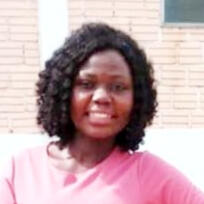
Interview with PhD Student – Loretta Nyarko
By Cerella Sarry
Q:Brief background about yourself/PhD program?
A:I’m from Ghana and have been in the US since September 2023. Prior to coming, I pursued a Bachelor in Actuarial Science from Kwame Nkrumah University of Science and Technology and then went and worked in a pension firm for 5 years as a portfolio analyst. I'm currently enrolled in the PhD, Sustainability programme at Rochester Institute of Technology (RIT) and I work with Dr. Nathan Williams as a graduate research assistant.
Q:Why did you decide to pursue a PhD/Research?
A:I love to solve problems given data and I believe a PhD would give me that background to enhance my skills to contribute and solve certain problems through research.
Q:What does e-GUIDE mean to you?
A:I see e-GUIDE as a group of like-minded individuals who are trying to solve power challenges in developing countries.
What do you think will be the most significant impact of e-GUIDE?
I think e-GUIDE would contribute significantly to the sustainable development goal #7 which has to do universal access to clean and affordable energy.
Q:Tell me about your e-GUIDE project.
A:My project will focus on minigrids in Sub Saharan Africa and I am looking forward to being able to research how the risk in the sector can be mitigated and also develop innovative financing mechanisms that would make it more attractive for private investors to participate.
Q:What’s the status of your e-GUIDE projects thus far?
A:I am just starting. So far, I have just been reading some papers and playing with the data. I have data from Tanzania so I’m currently playing with that data to see how I can come up with some data analysis to get my work starting.
Q:What are your materials and methods for accomplishing your project?
A:I would have to use machine learning algorithms coupled with some financial and economic modelling.
Q:What are your major challenges in carrying out these projects?
A:I believe the nature of the dataset might be a challenge and getting the right data might also be problematic.
Q:Have you figured out how to overcome these challenges?
A:I have not yet figured that out but I’m learning to see what I can do about it.
Q:What do you think the impact of your specific project will be?
A:I believe derisking the mini-grid sector will reduce the cost of capital for mini-grid projects thereby helping to scale up electricity access.
Q:How do you think your project compliments other e-GUIDE project?
A:So far from the papers I have been reading most of the work have been done by people with technical skills and coming from a finance background I think I am going to look at other perspectives of the minigrid project and I believe that would compliments what they have done so far.
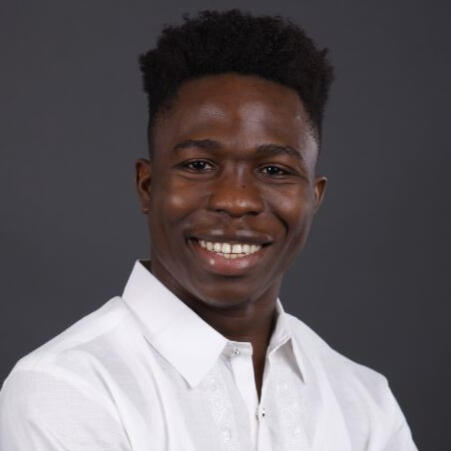
Interview with PhD Student – Fidelis Bologo
By Cerella Sarry
Q:Brief background about yourself/PhD program?
A:I am from one of the states called Benue in Nigeria, where many people don't know except I point it on the map. I completed my master's in Information Technology from Carnegie Mellon University Africa and a bachelor of science in Electronic Engineering from Angeles University Foundation, Philippines. I am currently doing my Ph.D. in Engineering and Public Policy at Carnegie Mellon University under the supervision of Prof.Paulina Jaramillo, with Prof. Barry Rawn and Prof. June Lukuyu as my co-advisors.
Q:Why did you decide to pursue a PhD/Research?
A:I was curious to understand the growing environmental changes, particularly regarding agricultural processes. Since I grew up in an agricultural society and have noticed the visible changes, I wanted to know more and find sustainable ways of tackling some of these changes.
Q:What does e-GUIDE mean to you?
A:e-GUIDE, to me, is a community of like-minded people seeking transformative approaches for solving real-world problems in developing regions, as we know, electricity access remains one of the most significant issues for our growing population, and many aspects of our social lives revolve around that.
Q:What do you think will be the most significant impact of e-GUIDE?
A:The region is heavily involved in different agricultural practices, so one significant impact of e-Guide will be to help the low-income agro producers leverage the opportunities to grow and embrace sustainable practices, especially utilizing the different clean energy resources around them.
Q:Tell me about your e-GUIDE project.
A:On a broader scale, my project focuses on developing a Climate Impact Atlas for Sub-Saharan Africa. This entails the evaluation of observable climate impacts on the continent, with a particular emphasis on monitoring Essential Climate Variables (ECVs) that are closely linked to agriculture.
Q:What’s the status of your e-GUIDE projects thus far?
A:I am still at the earliest stages of defining and narrowing things down.
Q:What are your materials and methods for accomplishing your project?
A:The most essential things would be data and computing power to analyze the data.
Q:What are your major challenges in carrying out these projects?
A:I cannot say for sure since I have yet to start exploring, but I sense some of it will be the data availability and quality. For now, I am trying to balance between courses and defining the scope of my research.
Q:Have you figured out how to overcome these challenges?
A:I am still considering the best approach for classes and research without compromising.
Q:What do you think the impact of your specific project will be?
A:I think the impact will be to identify the climate variables and be able to monitor them continuously and seamlessly to infer when changes happen.
Q:How do you think your project compliments other e-GUIDE projects?
A:Some of the methods and techniques I will be using for my project can also be useful to others since my project falls under the umbrella of energy-agric nexus, and there are several ongoing projects in this area.
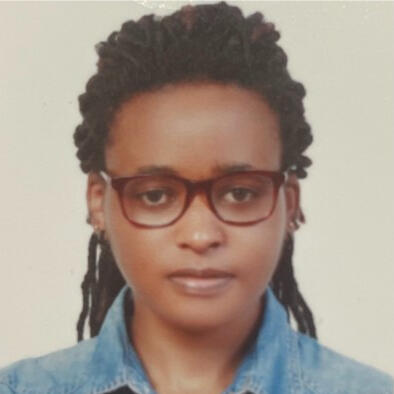
Interview with PhD Student – Nthenya Kyatha
By Cerella Sarry
Q:Brief background about yourself/PhD program?
A:I’m a third-year PhD student and most of my work is on energy modelling so I’m working on the future of cooling in African cities and trying to go as deep as starting from transformer level so checking the different apartments households that are connected to different transformers and making an assumption that if all of them were to start using air conditioners then what would be the strain on that transformer and whether the aggregate at a national level is something that the existing infrastructure can handle and we are projecting that in around the daily average temperatures will be very high meaning that people will have to start using air conditioners so it will be more like a necessity at that point. We are trying to project at that time will the existing infrastructure be able to handle that or does the government need to invest more
Q:Why did you decide to pursue a PhD/Research?
A:I’ve always been interested in solving problems around me so electricity is a major concern in Kenya. I think growing up there were a lot of outages and the factor that electricity bill would fluctuate every month, I noticed that we really didn’t change our consumption habits but then the bill would also change so my first project was to find out why so I created a sensor to measure our consumption and then much that with the bills we used to get from KPLC so that process of identifying a problem then going ahead to solve the problem, break the problem down into smaller pieces and work on it, try to solve each one of them and at the same time trying to learn all these skills that are required for you to be able to solve particular problem which is essentially what research is all about and also you get to see the outcome of your research in real-time cause after my first project I tried it at home and I could see the impact it had so I enjoyed the entire process that is when I realized this is something I want to do in the long term and decided why not do research
Q:What does e-GUIDE mean to you?
A:e-GUIDE to me is a group of people dedicated to solving electricity problems within the continent. It is like a community of people with different skills that complement each other
What do you think will be the most significant impact of e- GUIDE?
I think the change that you see in the community so previously June and Aggrey did a project in Lolwe island. After the project, there were a few investors who came in and put solar panel like a small mini-grid in the island as a result of what June and Aggrey did the year before. So when I went last year to collect data I could see the effects of the research they did. I think that the factor we work on community-based projects you get to see the results that is the largest impact.
Q:Tell me about your e-GUIDE project.
A:My project is the future of cooling in African cities. It is basically what I explained in the beginning.
Q:What’s the status of your e-GUIDE projects thus far?
A:As of right now we are at a point where we are deciding what data to collect. We started with Nairobi. We divided Nairobi to different estates and we are also analysis the buildings in the different estates and impacts that the building characteristics have on cooling so right now we are trying to check the data that we are getting, how different is it from whats on the ground. Most of the data we have has like the buildings in Kenya but we don’t have the buildings' heights. I’m in Nairobi right now to cross check the data we have and what is on the ground.
Q:What are your materials and methods for accomplishing your project?
A:Materials are mostly energy designed software like EnergyPlus and JEPlus while methods-modelling existing infrastructure to software, trying to check on the ground what exists and trying to model that in those software because we can’t directly use what is on the ground so we have to model it
Q:What are your major challenges in carrying out these projects?
A:Most of the data does not exist so we have to do projections or make a lot of assumptions
Q:Have you figured out how to overcome these challenges?
A:Yes, we have. For the building dataset we don’t have so we realized most estates in Nairobi can be grouped based on economic factors so we try to project the same data on any estate that can be said to be similar
Q:What do you think the impact of your specific project will be?
A:I think the impact is the government will be able to plan its infrastructure such that come 2050 when the consumption is high we don’t have power shortage and also implement policies such as regulating the air cooling, air conditioner market because one thing we have noticed so far is a lot of air conditioners in the market right now are less efficient and consume a lot of electricity based on the research we get and also the factors that we will be doing air conditioner modelling for the specific building. Then people will be able to buy air conditioners that are meant for their buildings and not something that is less efficient and consumes more electricity
Q:How do you think your project complements other e-GUIDE project?
A:Part of what STIMA lab and probably Prof.Paulina’s lab we have been working on trying to project the future of consumption and creating different scenarios so June worked on electric vehicles if people were to start adopting electric vehicles either two wheelers or vehicles, Musaab is also working on e-cooking, I am working on cooling. All these are at transformer levels then at the end of it all we are going to bring together all our research and say in 2050 this will be the consumption if different scenarios happen. So that is how it integrates with the rest of e-GUIDE when it comes to projecting energy consumption within the continent.
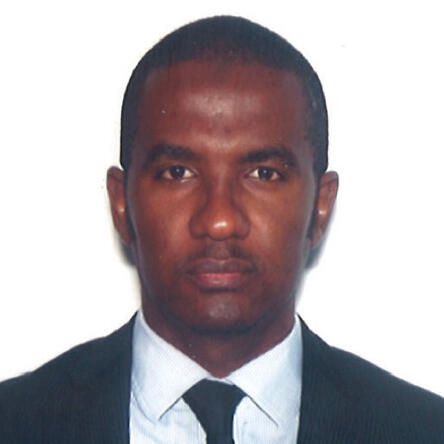
Interview with PhD Student – Musaab Mohammed Ali
By Cerella Sarry
Q:Brief background about yourself/PhD program?
A:I was raised in Omdurman, Sudan. I obtained my undergraduate and graduate degrees in electrical engineering from North Carolina State University, and I earned a master’s degree in Energy Engineering with a renewable concentration from UMass Lowell. At present, I am actively working towards a Ph.D. in Electrical Engineering (EE) at UMass Amherst, where I am a student in the STIMA Lab under the guidance of Professor Jay Taneja.
Q:Why did you decide to pursue a PhD/Research?
A:Motivated by a deep concern for the pervasive energy shortage in Sub-Saharan Africa, I chose to embark on a Ph.D. research journey. Witnessing firsthand the profound impact that insufficient access to energy has on communities in the region, I became impassioned to contribute meaningfully to finding sustainable solutions. Through advanced studies, I aim to explore innovative approaches within the realm of energy research, seeking to bridge the gap and improve energy accessibility. I aspire to leverage my academic pursuits to develop practical strategies that can positively impact the lives of individuals in Sub-Saharan Africa, fostering socio-economic development and environmental sustainability.
Q:What does e-GUIDE mean to you?
A:The e-Guide resonates strongly with me. It exemplifies a commendable initiative aimed at revolutionizing the structure and utilization of electricity systems in developing societies. This ambitious endeavor signifies a practical and admirable approach to tackling energy challenges in emerging nations. The e-Guide surpasses mere theoretical discussions by actively engaging in proactive energy management, working to formulate, execute, and expand these strategies. This demonstrates a dedication to pragmatic business solutions. In summary, the e-Guide embodies a concrete commitment to innovation, collaboration, and the provision of accessible and efficient electricity services in underserved regions.
Q:What do you think will be the most significant impact of e-GUIDE?
A:The most significant impact of e-GUIDE is likely to be a transformative improvement in the planning and operations of electricity infrastructure in developing economies. By constructing scalable, transnational measurement, and data analytics techniques, e-GUIDE aims to bring about positive changes in the way electricity systems are designed and utilized in these regions.
Q:Tell me about your e-GUIDE project.
A:Currently investigating the impact of wide adoption of electric cooking (e-Cooking) on the electric distribution network in Nairobi, Kenya.
Q:What’s the status of your e-GUIDE projects thus far?
A:The project is currently in progress. The initial phase has been concluded, utilizing electric cooking traces extracted from cooking diaries under the assumption of complete (100%) electric cooking across Nairobi. The subsequent stage involves considering partial electric cooking, taking into account the socioeconomic status of households across various neighborhoods in Nairobi.
Q:What are your materials and methods for accomplishing your project?
A:We possess data at the transformer level detailing the average daily load of transformers in Nairobi, including the associated customer count. Furthermore, we utilize cooking diary data to approximate the daily average electric cooking patterns in households. Each household is assigned a random daily cooking pattern, and the total cooking patterns for all households connected to each transformer are aggregated. Subsequently, the overall load for each transformer, encompassing both the base load and electric cooking contributions, is computed to ascertain transformer utilization.
Q:What are your major challenges in carrying out these projects?
A:One significant hurdle involves determining the daily power consumption for electric cooking for households throughout the city of Nairobi. While we rely on power traces derived from cooking diary data, there is a concern that these traces may not accurately represent the actual electric cooking patterns unique to each household.
Q:Have you figured out how to overcome these challenges?
A:Continuing efforts are directed toward creating electric traces that closely mimic the typical power consumption of households during electric cooking activities. This involves acquiring relevant data or generating synthetic data that accurately represents cooking patterns in households throughout Nairobi.
Q:What do you think the impact of your specific project will be?
A:The objective of this project is to provide insights into the condition of the distribution-level electric grid and to assess its capability to accommodate the increased load resulting from the widespread adoption of electric cooking throughout Nairobi.
Q:How do you think your project complements other e-GUIDE projects?
A:I believe my project has the potential to enhance our comprehension of the present state of the power grid in Nairobi concerning its capacity to manage the increased demand arising from electric cooking. Additionally, I aspire for Nairobi to serve as a preliminary case study, with the intention that this research could be replicated for cities throughout sub-Saharan Africa.
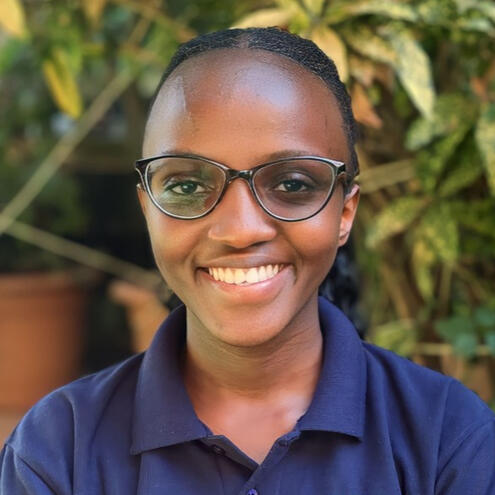
Interview with PhD Student – Sylvia Imanirakiza
By Cerella Sarry
Q:Brief background about yourself/PhD program?
A: I am Sylvia Imanirakiza, I hold a Bachelors of Science in Electrical Engineering from Makerere University. I’m currently pursuing a PhD program in Computer science at the University of Massachusetts-Amherst, where I am advised by Prof Taneja.
Q:Why did you decide to pursue a PhD/Research?
A:My interest in pursuing a PhD primarily stems from my previous work during my undergraduate studies. This work involved researching the applications of deep learning in healthcare and completing an undergraduate thesis focused on electric grid planning. With this background, I am keen on continuing to contribute to research and learning how to develop technologies that serve as decision-support tools, analytical tools, and enhance energy systems.
Q:What does e-GUIDE mean to you?
A:For me, e-GUIDE represents a group of multidisciplinary scientists and individuals dedicated to enhancing energy access in developing economies, especially in Africa. We focus on addressing various research challenges that significantly impact a large number of people. This involves leveraging emerging technologies and methodologies to effectively solve these challenges.
Q:What do you think will be the most significant impact of e-GUIDE?
A:For me, the most significant impact of e-GUIDE will be at the community level. I believe that the initiatives and projects undertaken through e-GUIDE are crucial in addressing community challenges and simultaneously contributing to knowledge creation in the local communities where we will be involved.
Q:Tell me about your e-GUIDE project.
A:My current e-GUIDE project is broadly looking at monitoring and planning for the energy transition and specifically my first project is looking at inferring power quality using computer vision
Q:What’s the status of your e-GUIDE projects thus far?
A:Presently it is in its early stages so that is mostly data analysis
Q:What are your materials and methods for accomplishing your project?
A: The materials firstly are data, the data which was collected from Kenya comprising of lighting, street light images and also power quality data and the methods at the present stage are data analysis.
Q:What are your major challenges in carrying out these projects?
A: One of the challenges that I identify with involves working with the significant amount of data sets. To tackle this, I am trying to address it through interacting with other members of the e-GUIDE group that have worked with significant amount of data. I am additionally taking advantage of computing resources available for the analysis.
Q:Have you figured out how to overcome these challenges?
A:Yes, As previously mentioned, mostly right now the approach to addressing them would be interacting with people that have at least worked with large data sets of this kind.
Q:What do you think the impact of your specific project will be?
A:Specifically, my project looking at “Monitoring and Planning for the energy transition” directly addresses critical needs to improve the access to reliable, safe, and abundant clean energy in different economies.Specifically, my work aims to significantly improve electricity service delivery, impacting essential institutions like hospitals and crucial transitions like a shift to electric cooking (e-cooking). In hospitals, improving electricity service can reduce high mortality rates among mothers and children, preventing needless deaths.
Q:How do you think your project compliments other e-GUIDE projects?
A: In the context of other e-GUIDE projects, my project complements the broader initiative by contributing to the understanding and advancement of electricity infrastructure. e-GUIDE, with its focus on electricity growth, encompasses various projects, including those related to the energy transition, demand stimulation. My project aligns with these initiatives by providing insights into the implications of energy transitions on the grid and how it can be seamlessly integrated. The synergy within the e-GUIDE projects is evident as they collectively analyze and address different aspects of the electricity ecosystem, reinforcing each other's efforts to achieve a comprehensive and impactful transformation.
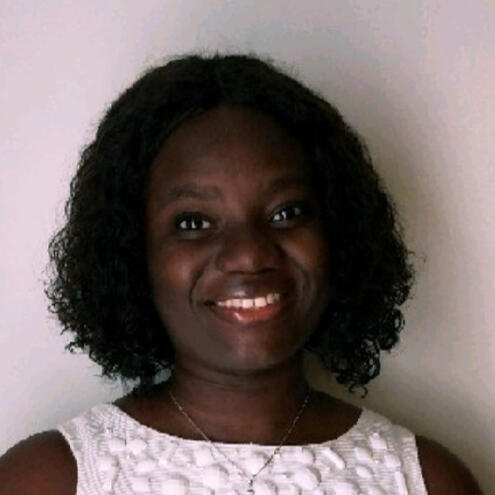
Interview with PhD Student – Nana Akua
By Cerella Sarry
Q:Brief background about yourself/PhD program?
A:I pursued an electrical and electronics engineering undergraduate degree from Ashesi University in Ghana. After which I worked for about 3 years in a cable manufacturing company. I'm currently a Ph.D. student at the University of Massachusetts-Amherst
Q:Why did you decide to pursue a PhD/Research?
A:I realized all through my academics that I enjoyed the ability to solve problems and tackle issues at a large scale. In my previous role, my work focused on problem-solving, which was key to industrial performance. As I grew in that role, I realized I would really enjoy solving large-scale problems and I saw a PhD as a way to build the relevant skills needed, particularly in the energy sector because I believe that is key to economic development.
Q:What does e-GUIDE mean to you?
A:e-GUIDE to me is a group of experts who are focused on providing solutions to the complex problems in developing countries particularly when it comes to energy access and sustainable development.
Q:What do you think will be the most significant impact of e-GUIDE?
A: I believe the data and unique solutions that the e-GUIDE team provides is very important in helping policymakers make informed decisions in cases where it would have been almost impossible or difficult to do so with the resources available in these areas. I also believe the impact the solutions have on lives as well will be significant.
Q:Tell me about your e-GUIDE project.
A:I’m still in the initial stages but I’m looking at appliance-level storage and its impact on consumers, and the grid.
Q:What’s the status of your e-GUIDE projects thus far?
A:I’m still in the initial stages of exploratory data analysis. I’m using a lot of visualizations to understand the data and draw insights.
Q:What are your materials and methods for accomplishing your project?
A:I’m using appliance electricity consumption datasets. I'm also using data analysis and visualization tools to get some insights into the data.
Q:What are your major challenges in carrying out these projects?
A:For now, I would say that the major challenge is the availability of data at appliance level. It has been quite challenging to get as diverse as possible data on energy consumption at the appliance level for different appliances. There has also been issues with missing patches of data in the available datasets.
Q:Have you figured out how to overcome these challenges?
A: The e-GUIDE team has been super helpful because quite a number of team members work with data at a large scale, and have gained the expertise needed to handle missing data points in a dataset. They have been helpful in providing ways to go about it.
Q:What do you think the impact of your specific project will be?
I believe that I provide a unique perspective on consumer behaviour because my work narrows down on home appliance consumption and investigates a cost-effective way that the energy transition can happen in developing economies.
Q:How do you think your project compliments other e-GUIDE projects?
A:I think that one of the important things that e-GUIDE does is to provide data and energy solutions.
This is a unique project that looks at consumer behavior and consumer patterns specifically and its effects on the grid. My research focus also has the possibility of impacting lives when it comes to the reliability of electricity in developing countries because in the case of appliance level storage, people would have little of stashes of stored energy in their homes which can be particularly helpful in areas where there is erratic power supply.

Interview with PhD Student – Massa Civian Kiki
By Cerella Sarry
Q:Brief background about yourself/PhD program?
A:I am from the Northwest region of Cameroon. Prior to starting a PhD, I earned a bachelor’s degree in Electrical Power Systems engineering from the African Leadership University in Mauritius. During my undergraduate studies, I had the privilege of interning with the grid dispatch team at ENEO, the utility company in Cameroon. Currently, I am pursuing a PhD in Electrical and Computer Engineering at the University of Massachusetts-Amherst.
Outside my academic pursuits, I like to cook and sometimes, I indulge in keeping a keen eye on the latest trends in African Fashion
Q:Why did you decide to pursue a PhD/Research?
A:Following my internship experience with the utility company in Cameroon, I gained valuable insights into the existing infrastructural challenges within the country's electricity grid. As I pondered ways to make a substantial contribution to the enhancement of our energy infrastructure, it became evident that pursuing a PhD to further my expertise in this domain would equip me with the necessary tools and knowledge to effectively address these pressing issues.
Q:What does e-GUIDE mean to you?
A:To me, e-guide is a group of researchers from diverse backgrounds and skill set. They have a common goal that aims to employ a range of tools and methodologies to assess the condition of various infrastructure in developing economies.
Q:What do you think will be the most significant impact of e- GUIDE?
A:To me, E-Guide's primary impact lies in the enhancement of electricity infrastructure in developing economies. Their research outcomes will empower utilities and relevant stakeholders with valuable insights, enabling them to make well-informed decisions to improve and optimize infrastructure development and management.
Q:Tell me about your e-GUIDE project.
A:My work is still looking at power quality but from an energy access perspective. Beside technical factors, I am also looking at social, contextual, and economic barriers to electricity use in urban informal settlements and rural areas. Currently, I am investigating how power quality as a dimension of access influences appliance purchase decisions and use in urban informal settlements.
Q:What’s the status of your e-GUIDE projects thus far?
A:I have successfully completed the first phase of fieldwork. Currently, my focus has shifted towards extensive data analysis and formulation of the dissertation outline.
Q:What are your materials and methods for accomplishing your project?
A:I'm employing a mixed-methods approach that incorporates remote power quality monitoring, interviews, surveys, and focus group discussions. This comprehensive approach aims to gain a holistic understanding of energy infrastructure challenges in developing economies and inform recommendations for improvement.
Q:What are your major challenges in carrying out these projects?
A:My major challenges in carrying out these projects primarily revolve around internal factors that can impact my performance and progress. One of the key challenges I face is feeling overwhelmed at times. However, it's worth noting that I am fortunate to have a highly supportive team that helps mitigate some of these internal challenges.
Q:Have you figured out how to overcome these challenges?
A:I'm still working on finding effective ways to overcome these challenges. It often involves strategies such as time management, prioritization, seeking support and guidance from my team, and implementing self-care practices to manage feelings of overwhelm. It's an ongoing process of learning and adapting to improve my performance and progress.
Q:What do you think the impact of your specific project will be?
A:Through a mixed-methods approach encompassing remote power quality monitoring, interviews, surveys, and focus group discussions, my project seeks to provide comprehensive insights into the state of electricity infrastructure in developing economies. These insights can inform decision-makers and stakeholders, potentially leading to more targeted interventions and improvements in energy reliability, economic development, and living conditions in the studied regions and beyond.
Q:How do you think your project compliments other e-GUIDE project?
A:My project complements other e-GUIDE projects by offering a specialized focus on the assessment and enhancement of electricity infrastructure in developing economies. The data and insights generated from my research contribute to the broader understanding of infrastructure challenges within the e-GUIDE initiative, fostering a more comprehensive approach to the energy infrastructure development and management in developing countries.
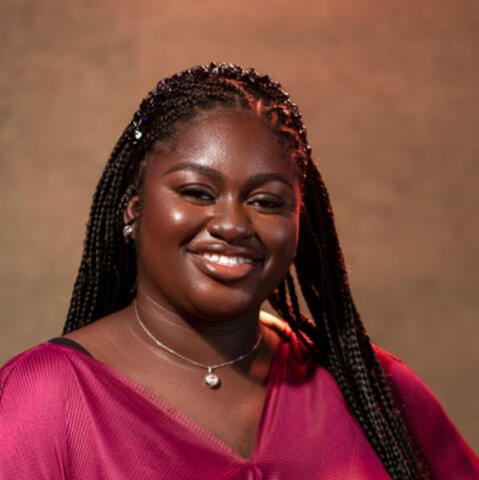
Interview with PhD Student – Nana Oye Ndaase Djan
By Cerella Sarry
Q:Brief background about yourself/PhD program?
A:My name is Nana Djan from Ghana. I’m an Engineer and Public policy Ph.D. student at CMU and I hold a Bachelor's in Mechanical engineering from Ashesi University also in Ghana and I have always been interested in sustainable development, particularly in understanding preserving humidity and natural environment.
Q:Why did you decide to pursue a PhD/Research?
A: I was introduced to research by one of my professors during my bachelor's degree and I really liked it and with my desire to work in sustainable development and policy, it seemed like the best fit for me.
Q:What does e-GUIDE mean to you?
A:To me, e-GUIDE is a collaborative effort to help tackle SDG-related issues in Sub-Saharan Africa
Q:What do you think will be the most significant impact of e-GUIDE?
A:I think it will be providing a positive dream or so to like resilience and adaptation and mitigation efforts in attaining the SDGs and working towards Vision 2030 in regards to SDGs and I think Vision 2030 which has been set by the African Union.
Q:Tell me about your e-GUIDE project.
A:Right now it is still an idea, not really a definitive project but the whole idea is to determine how climate change has affected water resources in Sub-Saharan Africa using remote sensing
Q: What’s the status of your e-GUIDE projects thus far?
A:Right now is just like reading and lots of discovery on what has already been done, what are the gaps and then taking a lot of classes to build up the knowledge that I need for the project and the skills for the project
Q:What are your materials and methods for accomplishing your project?
A:Since the project is not fully defined, I don’t really have a concrete answer but I just know there will be remote sensing
What are your major challenges in carrying out these projects?
One thing I have realized is the data to carry out the project. I’m looking out into what has already been done and the dataset they use there is a lot of variability in the temporal and spatial resolution, what is acceptable for projects like this
Q:Have you figured out how to overcome these challenges?
A:Not yet, but from where I am, people use what they have especially for the temporal resolution they book up the period that there was data available or into like time block to use. It is not a definitive answer but that is what I have for now.
Q:What do you think the impact of your specific project will be?
A:I think there has been a lot of work in projecting in what climate change will do to water resources and there has been some work done on some of the river basins in Africa and how climate change has affected it but then a lot of it hasn’t been done using remote sensing so I think if there is a really good way to capture that damage and see that this due to climate change I think it will be a really good thing going forward on how policies are defined for a lot of countries in Sub-Saharan Africa
Q:How do you think your project compliments other e-GUIDE projects?
A:There seem to be a lot energy-related projects and agricultural-related projects all of which depend on water resources, Africa is really dependent on hydroelectricity right now and so understanding how much the water sources have changed and will change will be very important to e-GUIDE projects
Interview with PhD Student – Ahana Mukherjee
By Cerella Sarry
Q: Brief background about yourself/PhD program?
A: My journey to my PhD has been a bit of a circuitous route. My bachelor's degree was in Civil and Environmental Engineering with a focus on environmental and water resources engineering. I really hoped with that degree I would be able to work on sustainable development projects throughout the world. After I graduated with my bachelor's degree, I worked in several typical civil engineering land development firms doing grading and drainage design and stormwater management. I quickly realized that civil engineering was not going to push me into the directions that I was interest in since I was beginning to develop an interest in energy which I didn’t have an academic background in and I wasn’t getting that type of experience in my industry practice. This motivated me to pursue a master’s degree at UC Berkeley in an interdisciplinary program called Energy, Civil Infrastructure, and Climate. I took some very interesting power systems classes in the Electrical Engineering department which really opened my eyes up to how much I was interested in learning about energy systems and sustainable energy. I graduated with my masters’ degree during COVID so it was a little challenging in terms of moving forward but I ended up working for a consulting company doing renewable energy implementation and design for battery energy storage, commercial solar, and electric vehicle fleet charging. This experience really solidified my interest in energy systems and prompted me to pursue a PhD. I am currently at the University of Washington right in Dr. June Lukuyu’s research group focusing on energy access, development, and rural electrification.
Q: Why did you decide to pursue a PhD/Research?
I knew I wanted to do a PhD since I started my undergraduate degree but I wasn’t quite sure then on what I wanted to do it on. As a result, I really leveraged getting industry experience as a way to understand my own interests so as to better shape my research directions. This journey has been a long time coming and I'm finally at the point where I am pursuing a PhD.
Q:What does e-GUIDE mean to you?
A:e-GUIDE serves as a research and collaboration forum for researchers who are pursuing similar topics related to energy access, electrification and sustainable energy practices. It is an avenue for collaborating and being in dialogue to develop innovative solutions specially tailored for developing communities.
Q:What do you think will be the most significant impact of e-GUIDE?
A:Since e-GUIDE is such a cross-disciplinary and cross-university collaboration, it poses as a really great opportunity for interesting and important work to come out of it which can have a significant impact directly on the communities we are working with. Overally, it is applied research with a direct focus on social impact.
Q:Tell me about your e-GUIDE project.
A:I am a first year PhD student so I am spending most of my time currently trying to develop the research questions I intend to pursue. I initially started working on the electric cooking project in Kampala, Uganda under Spotlight Kampala. At this point, my involvement is doing preliminary data analysis and processing of household consumption and monitoring data from sensors installed in informal community settlements. I am also beginning to explore possible research questions related to a needs-based assessment of rural development of mini-grids and urban electrification efforts.
Q:What’s the status of your e-GUIDE projects thus far?
A:At this point, it is mainly familiarizing myself with the sensor data we have and doing some initial processing. As far as other projects, it is very much in the initial stages of literature review and background research to identify the gaps so as to determine the research questions.
Q:What are your materials and methods for accomplishing your project?
A: Data processing will require coding infrastructure. As the projects evolve, there will likely be a mixed-methods approach combining both quantitative and qualitative methods.
Q:What are your major challenges in carrying out these projects?
A: In the beginning there is always a bit of a learning curve which involves getting up to speed on the nature of the project as well as understanding what has already been accomplished in order to identify the gaps and be able to move the project forward accordingly.
Q: Have you figured out how to overcome these challenges?
A:Being proactive in communicating with my advisor, June and continuing to ask the right questions as I get up to speed on the project.
Q:What do you think the impact of your specific project will be?
A:Looking into electrification and electric cooking specifically has broader impacts that can be extrapolated to various regions around the world. Even if the study is focused in Kampala, the issues that are impacting these communities, especially in terms of access to sustainable and reliable energy, financial barriers they encounter for obtaining electricity, as well as the quality of the electric infrastructure these communities experience is not only localized to these communities but applies to communities all over the world. Understanding what is happening at this community level allows us to extrapolate and tailor solutions to similar communities..
Q:How do you think your project complements other e-GUIDE projects?
A:I think this project is looking at similar things that are relevant to e-GUIDE particularly with regards to energy access, electrification and especially rural energy. This type of work is very much aligned with e-GUIDE’s mission and goal
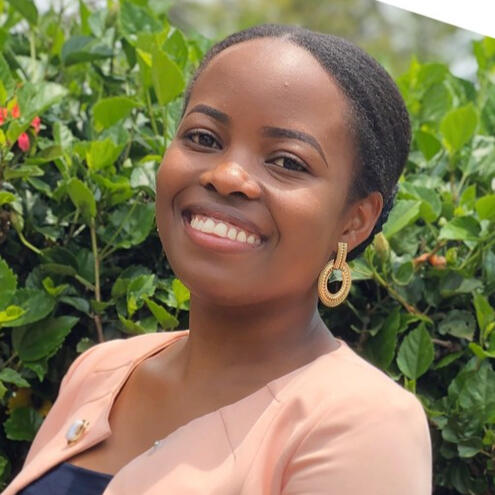
Interview with PhD Student – Eliane Nirere
By Cerella Sarry
Q: Brief background about yourself/PhD program?
A: I have a background in Mechanical and Energy Engineering from my undergraduate and in my master's, I did Electrical and Computer Engineering with a concentration in Energy Systems and Data Science. I joined PhD at University of Washington in Electrical and Computer Engineering in the IDEAS lab. June is my advisor and I have a background in data science and analytics from the World Food Program and rising academics so in my PhD I am working on two different projects one is load estimation from mini-grid development in Fiji where I am focusing on producing load profiles from survey data and the second project that I am just starting is to look at how climate change has been influencing the use of air conditioning and raising of load in Washington State.
Q: Why did you decide to pursue a PhD/Research?
A: I decided to pursue PhD because I wanted to get the expertise in Energy Systems and well as to give my contribution in raising equity in this climate change era where we are doing energy transition to clean energy so I thought doing my PhD I will give my contribution to raising the importance of including everybody in energy transition
Q: What does e-GUIDE mean to you?
A: e-GUIDE is a combination of different people with different ideas so it helps me to interact with other PhD students from different places and it helps me to get different ideas.
Q: What do you think will be the most significant impact of e- GUIDE?
A: I will put this into two parts: one is to get to interact with other PhD students like on my research and get different feedback from different people and since e-GUIDE has different people from different backgrounds it will help me to get the feedback that I want and I can work on that to develop my own research. The second part gives me an opportunity to work in different areas like Sub-Saharan Africa and work with vulnerable populations because it has a focus on raising energy goals like energy transition, and clean energy transition so I feel like those are the two parts that will help me and impact me
Q: Tell me about your e-GUIDE project.
A: I am working on load estimation in Fiji from survey data
Q: What’s the status of your e-GUIDE projects thus far?
A: Now they are collecting data in Fiji so we are still waiting for the data to be complete and we can start the data analysis and we have done the literature review and we are currently now developing the methodology for the paper and what we will use in data analysis.
Q: What are your materials and methods for accomplishing your project?
A: My materials I am going to use data analytics, machine learning as well to conclude the load estimation and I am yet to decide which one I use because I am still waiting for the data and I will also use Zindi or Homa
Q: What are your major challenges in carrying out these projects?
A: I can't say any so far because I just started so I can’t talk about them now
Q: Have you figured out how to overcome these challenges?
A: I can't cause I haven’t faced any
Q: What do you think the impact of your specific project will be?
A: So in this project, we are particularly focusing on community engagement in developing load, load profiles for mini-grid development so we were see how community engagement is going to impact the accuracy of the developing load profile for mini-grid development so that is one thing that I am looking for and what level of community engagement level is needed at least to have high accuracy in developing these load profiles in mini-grid in rural areas
Q: How do you think your project compliments other e-GUIDE projects?
A: e-GUIDE mostly focuses on rural electrification and this one is as well complimenting that side of working space because we are working with people in rural areas so it is electrification in rural areas and community engagement as well.
e-GUIDE’s Electricity Consumption Prediction API is freely available to the public. Please contact [email protected] to request an API key to use the API.
The API provides access to consumption prediction estimates developed from a model trained with satellite imagery and large utility customer datasets. These estimates can easily be integrated into energy system planning tools thus enabling better incorporation of realistic consumption estimates and hypotheticals into electricity planning processes.
The API initially provides estimates on residential consumption in Kenya with Uganda and Rwanda to soon follow. By late 2021, the API will provide consumption estimates for small and medium sized enterprises as well as coverage for all of Africa.Whitepaper (Nov. 2020): "Electricity demand estimation and viability analysis for off-grid villages in Kenya" - High-Quality (30 MB) - Low-Quality (8 MB)
Google doc (Feb. 2021): Model Documentation
Electricity Consumption Prediction Service
i) Electricity Prediction Pipeline
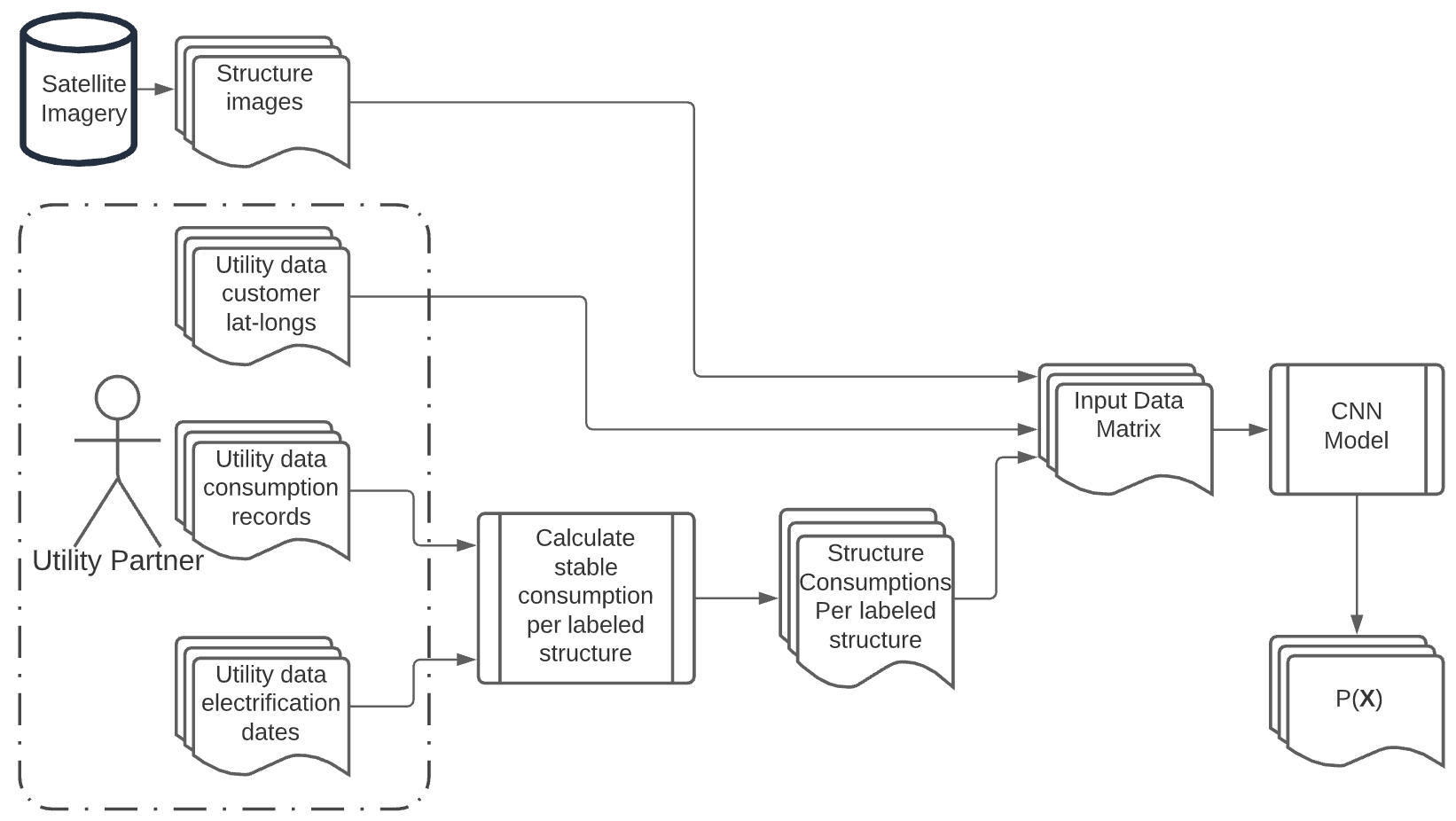
Convolutional Neural Networks (CNNs) are used to predict individual building consumption levels using data from satellite imagery and utility customers
ii) Model Input | Output for a Single Building
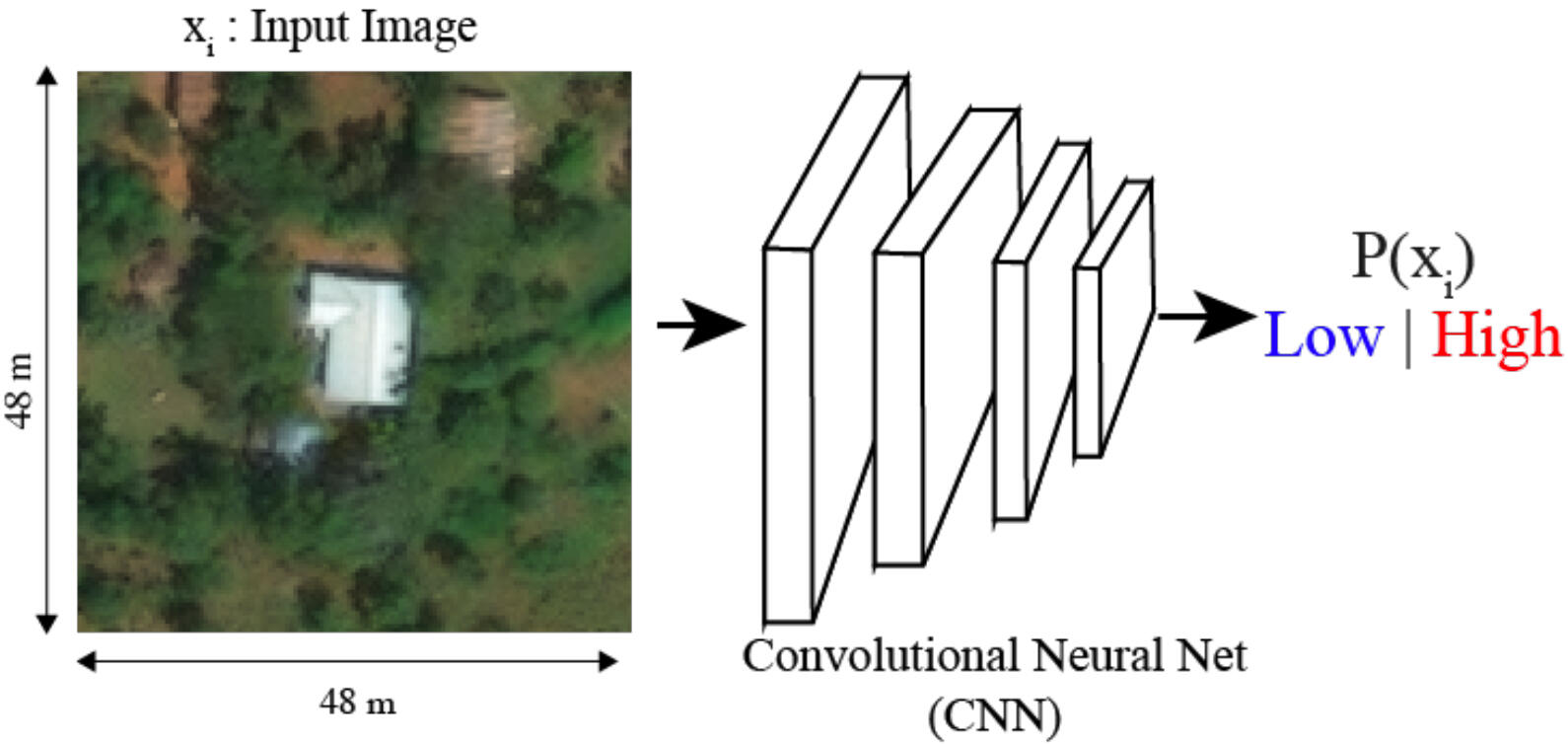
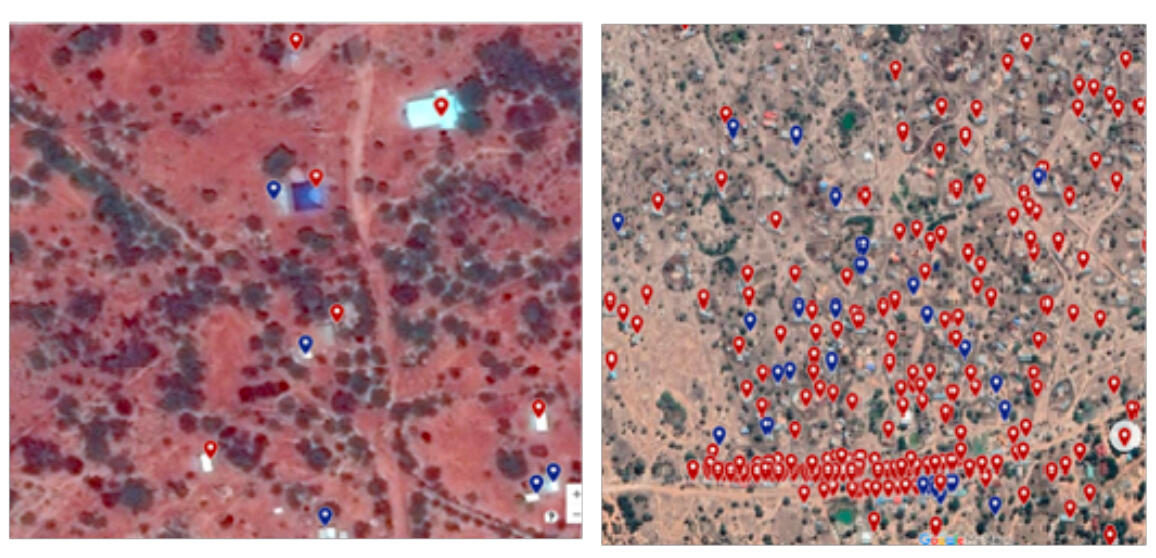
Individual buildings are classified into two consumption levels, low and high.
iii) Consumption Prediction Database and API
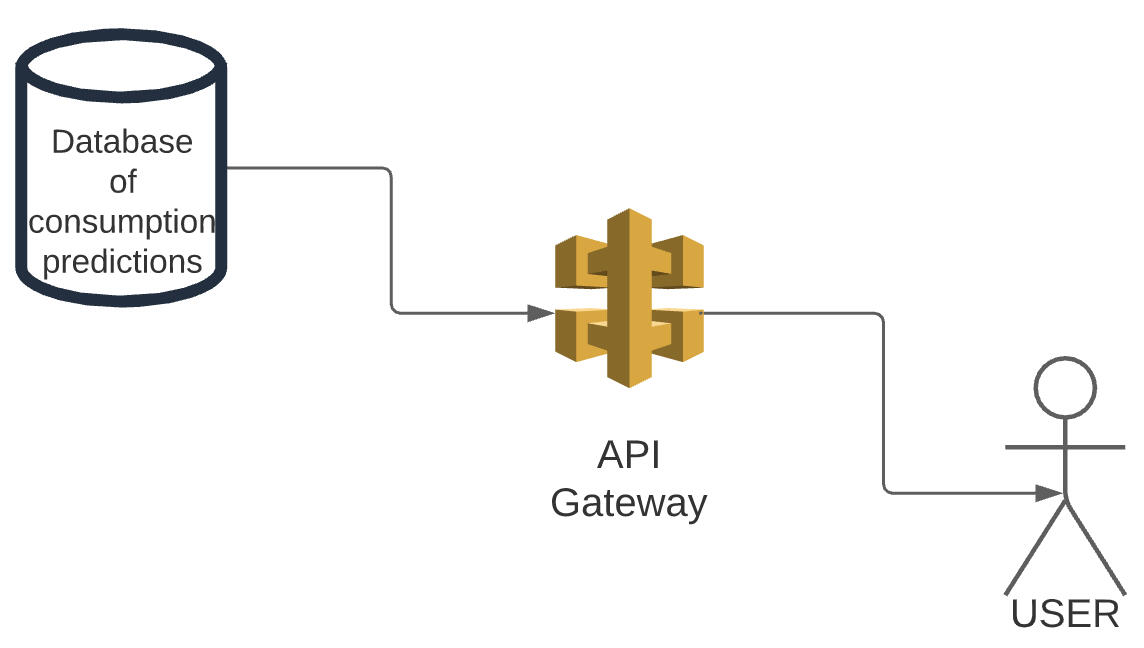
All individual building consumption predictions are stored in a database and made available to the public through an API
Developer’s reference API documentation
Key resources for using the API:
Predictions for 11.9 million buildings in Kenya
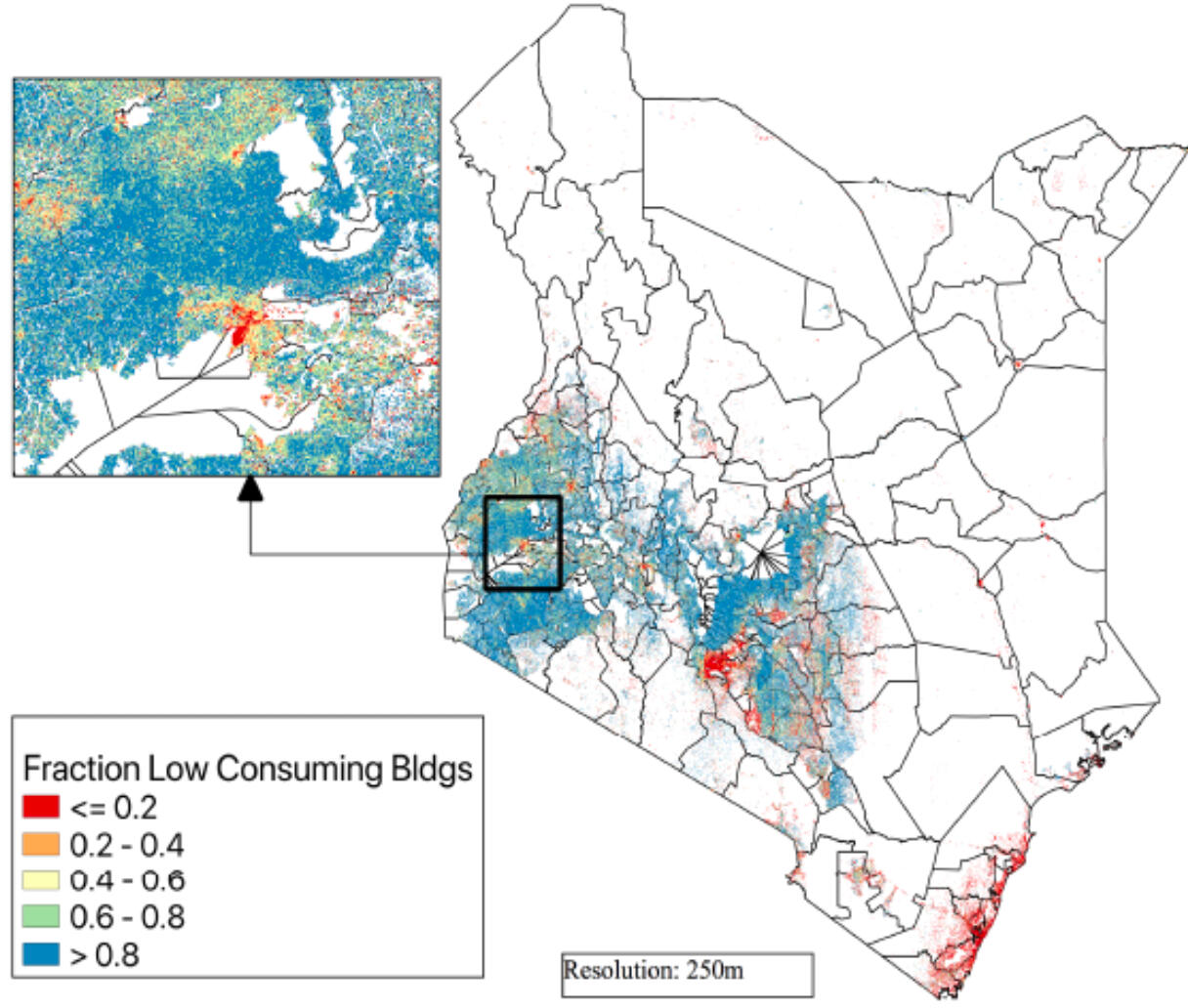
Novel dataset of predicted electricity consumption levels for Kenya aggregated at 250m resolution. Shows fraction of expected low consuming buildings within each 250m grid cell. Blue indicates regions with a large fraction
of low-consuming buildings while Red indicates regions with a large fraction of high-consuming buildings.
Available Positions with e-GUIDE
PhD Students
e-GUIDE is a team of engineers and researchers who aim to develop new techniques for measuring the inputs to economic activity in sub-Saharan Africa. We are always keen to speak with interested researchers looking to pursue PhD-level research on related topics. Please contact us at [email protected] with your CV and a brief statement of your research interests.
